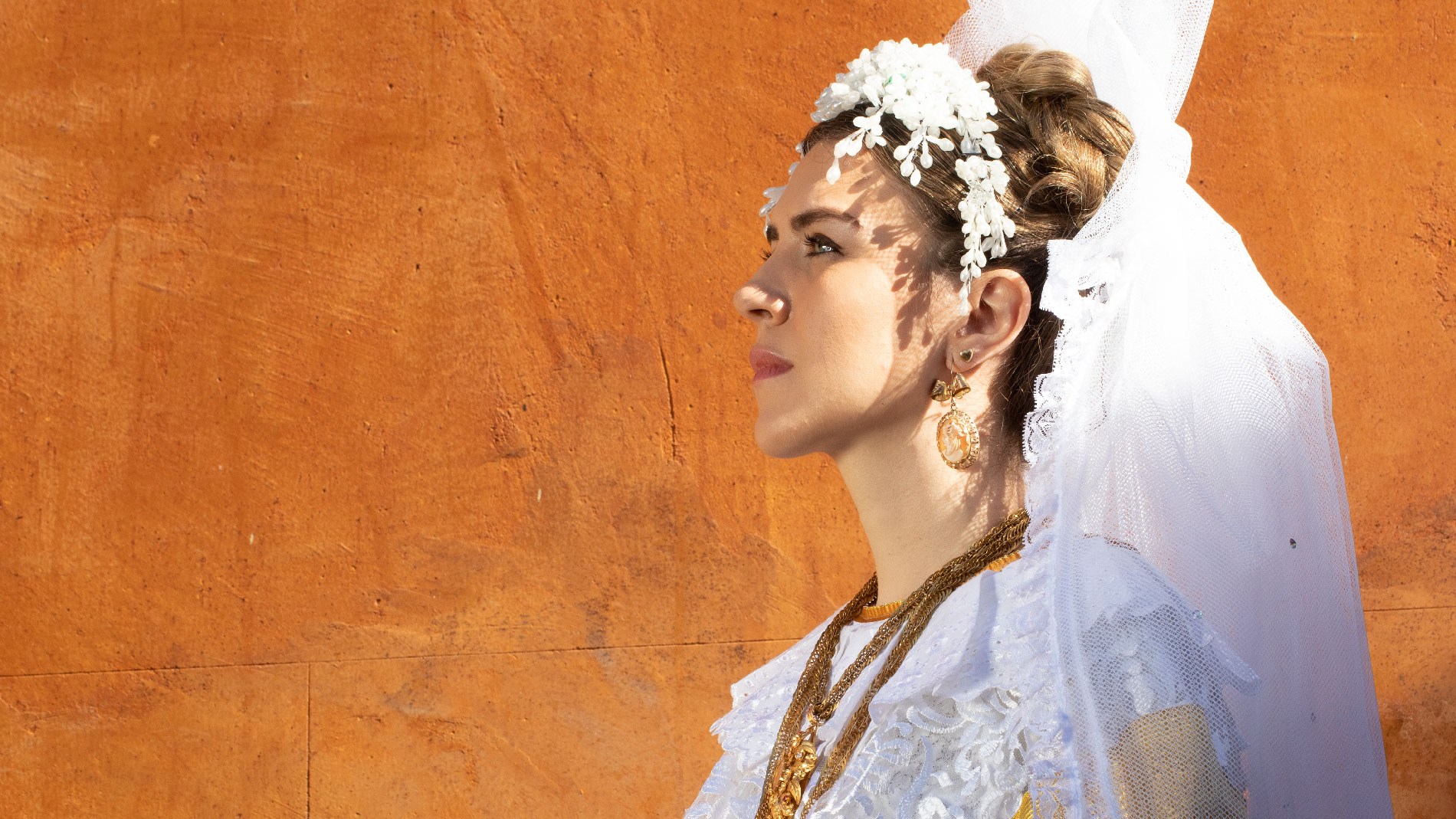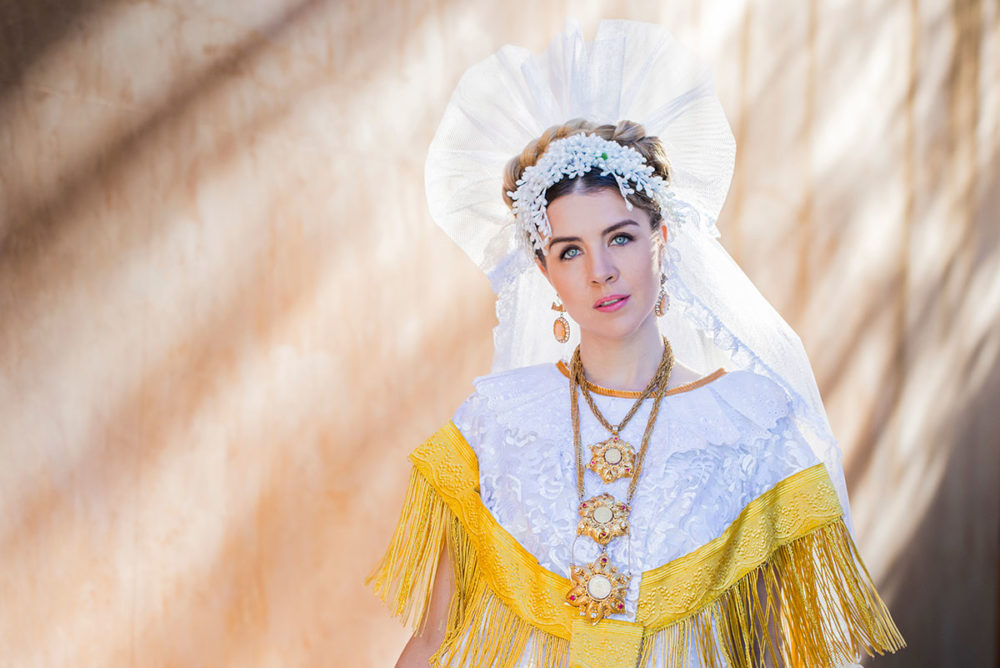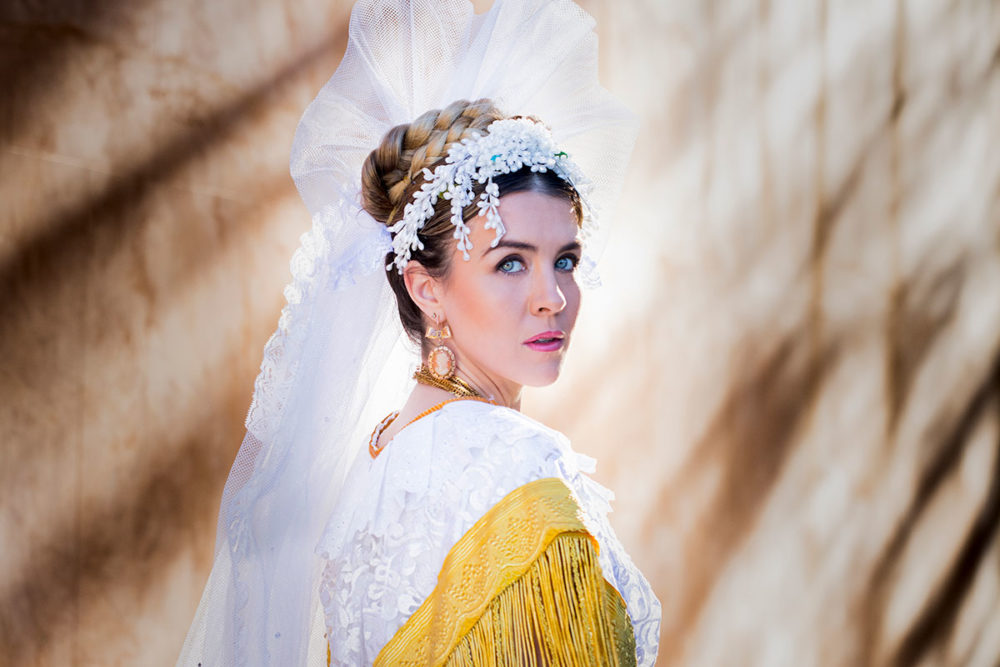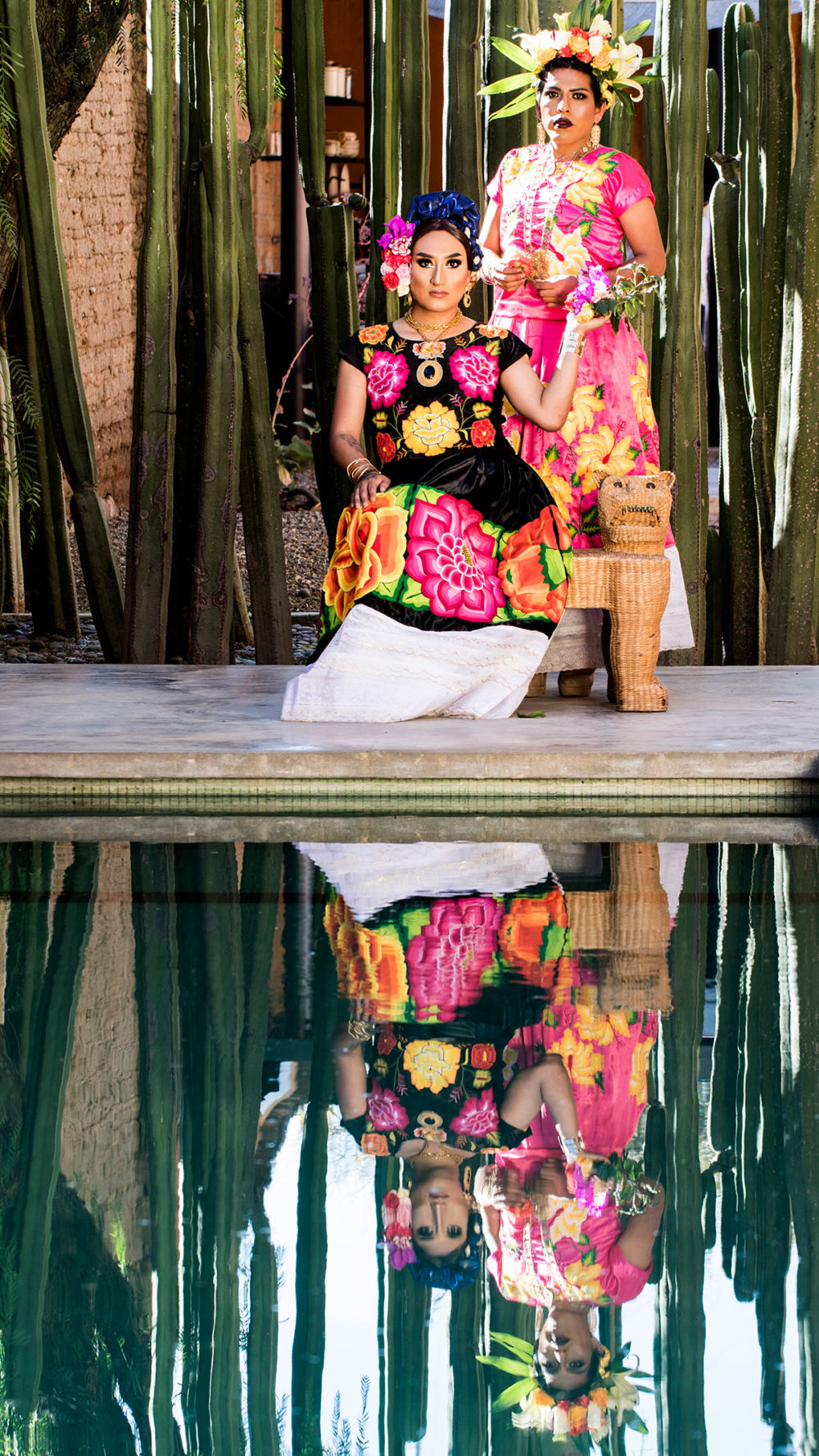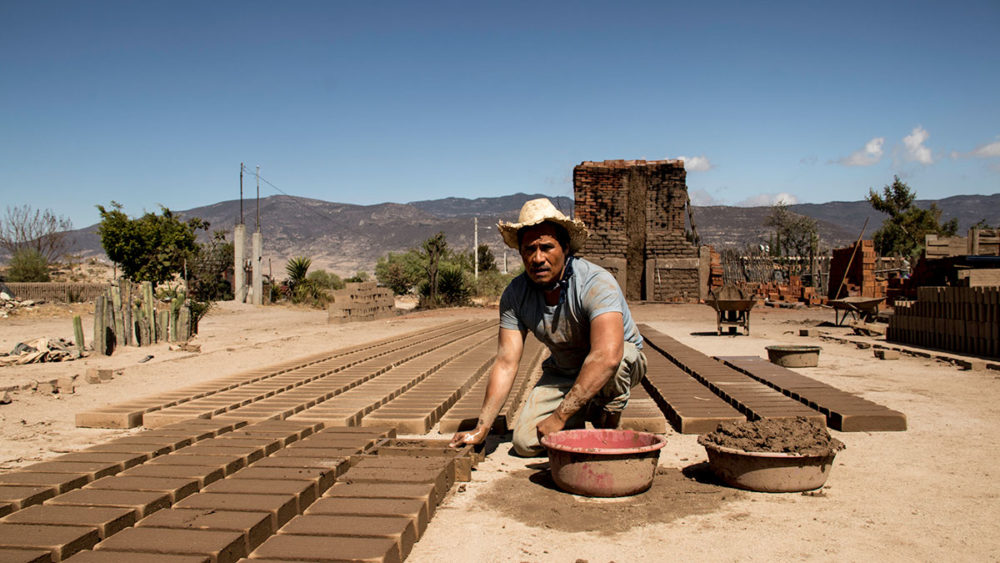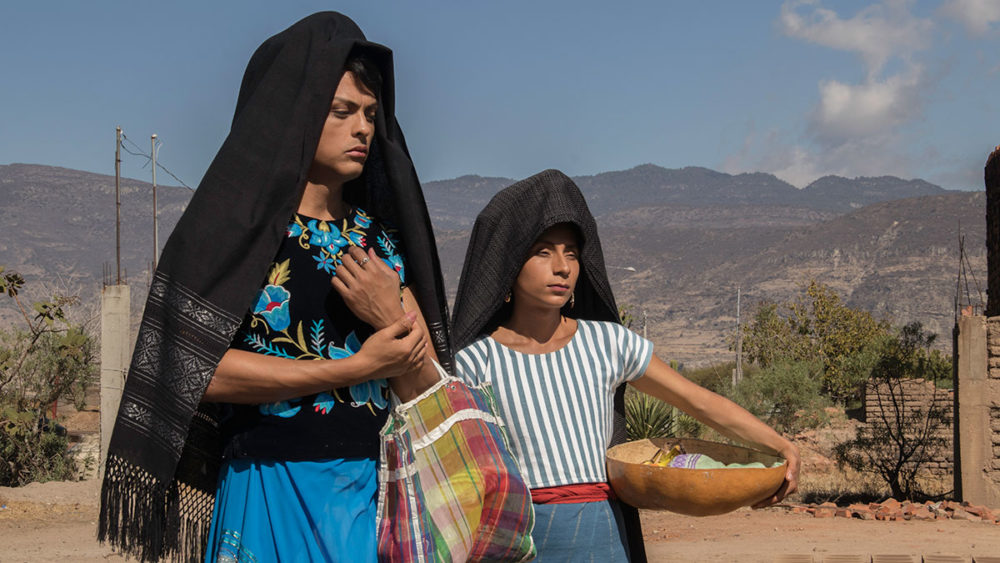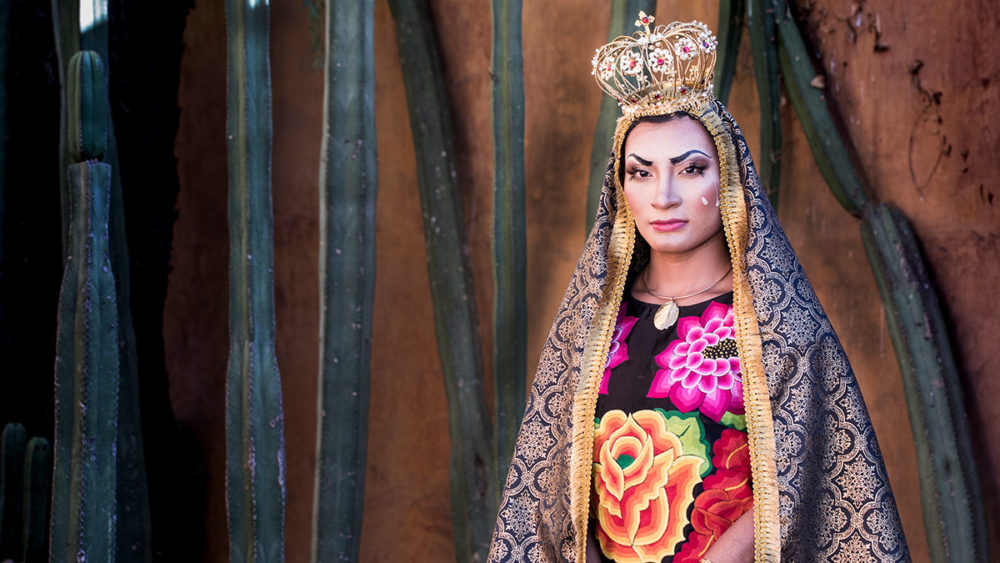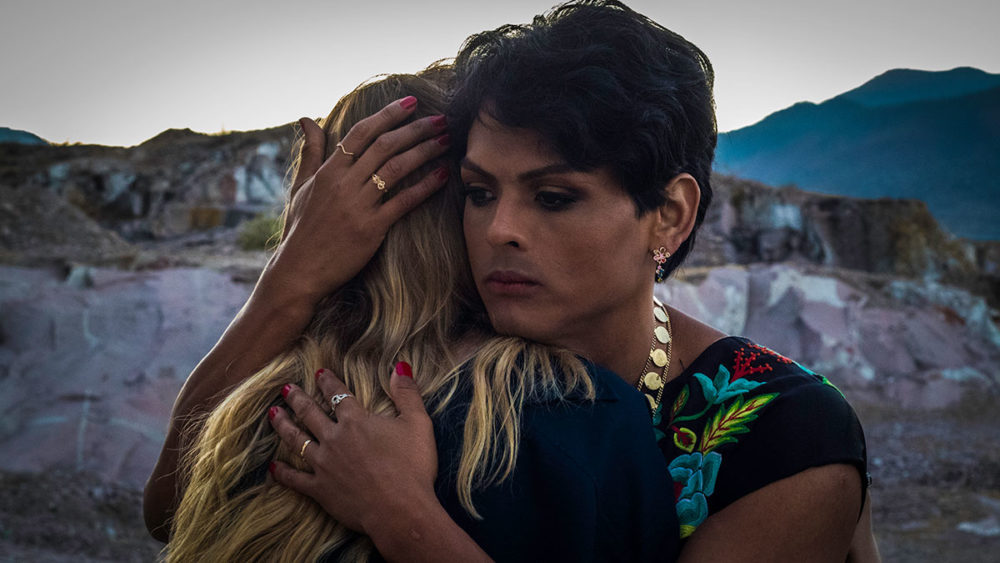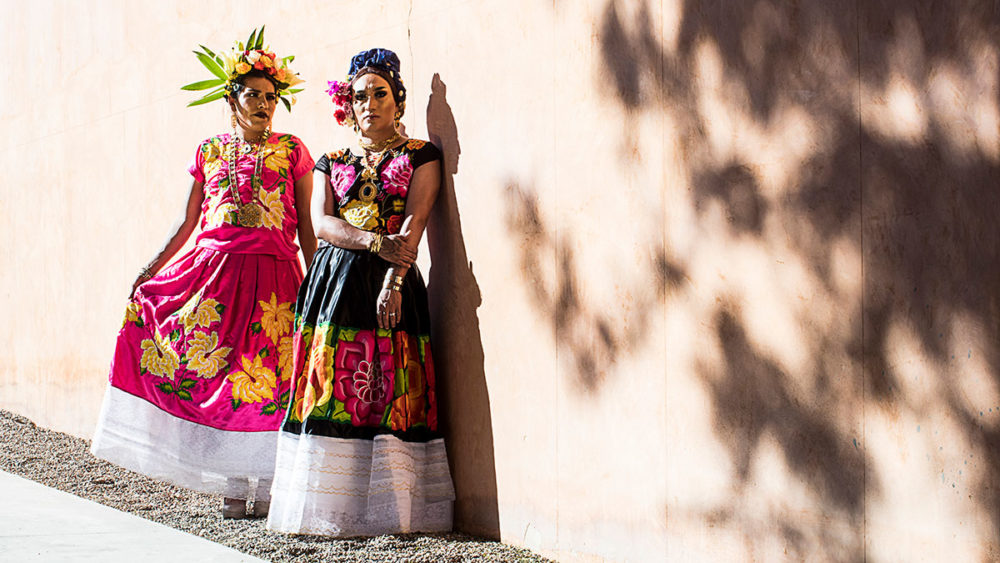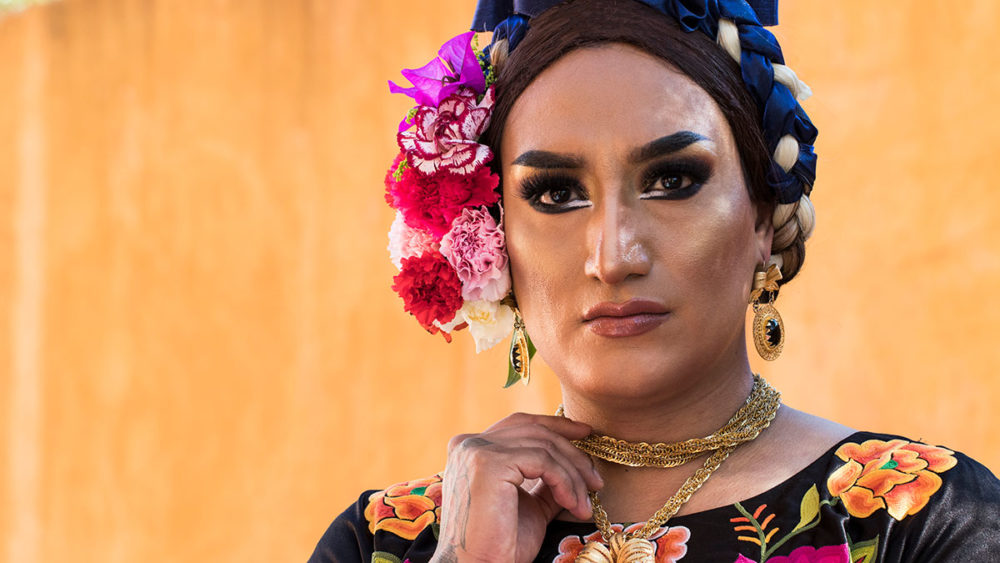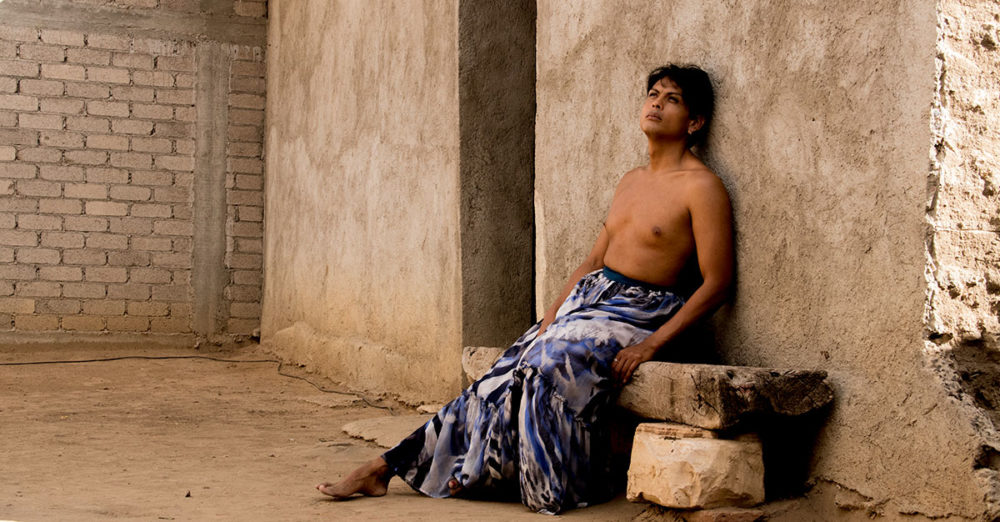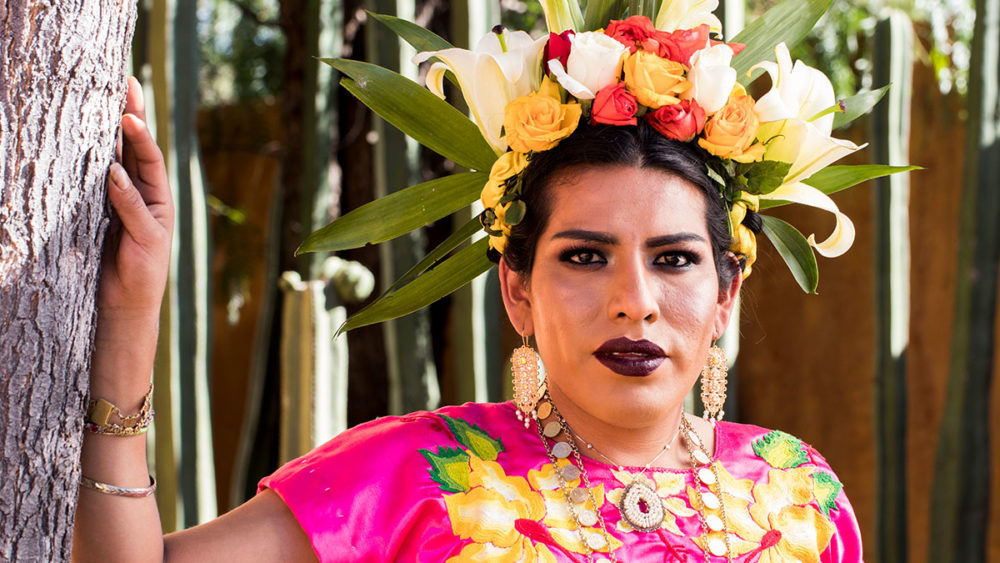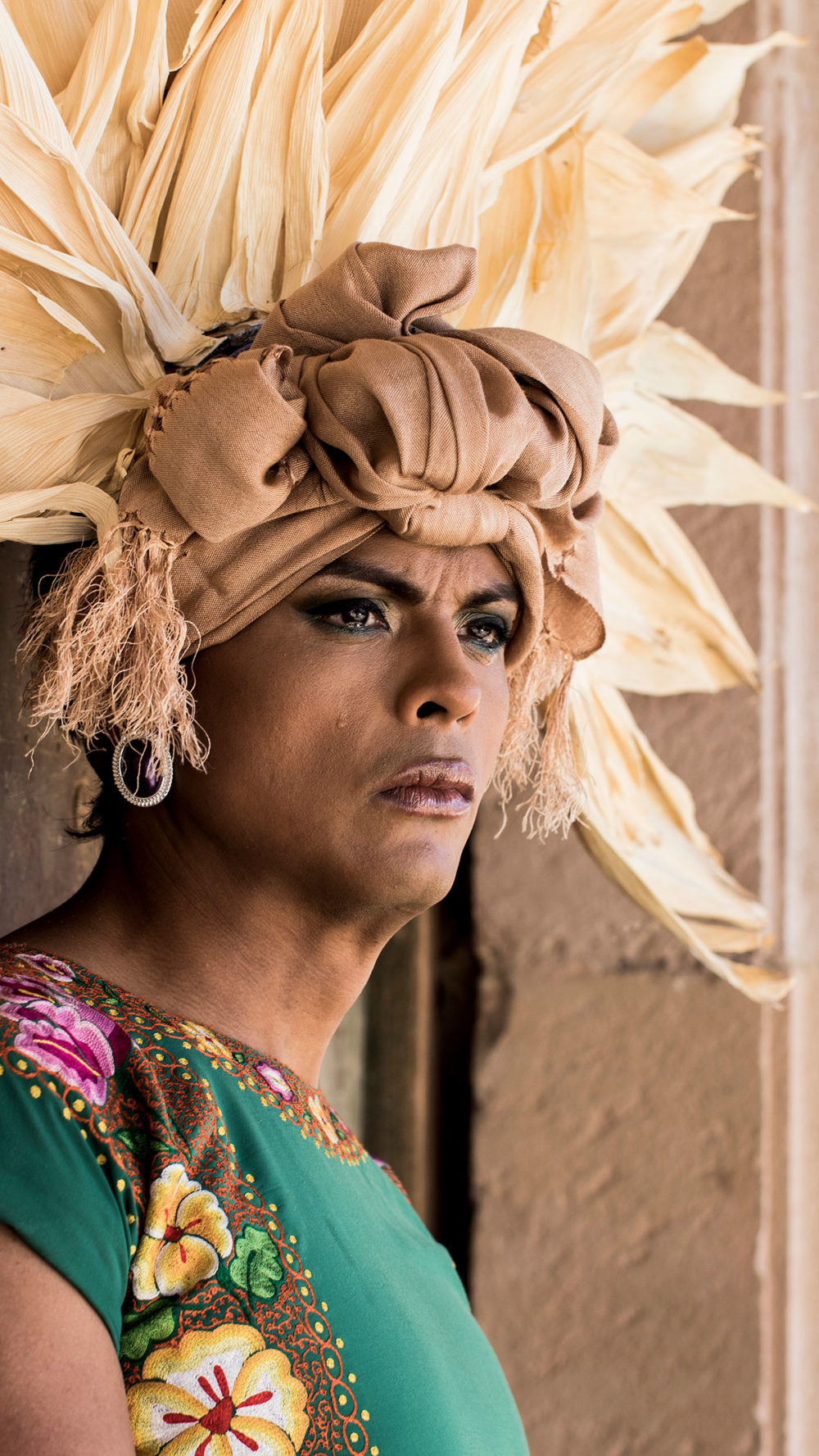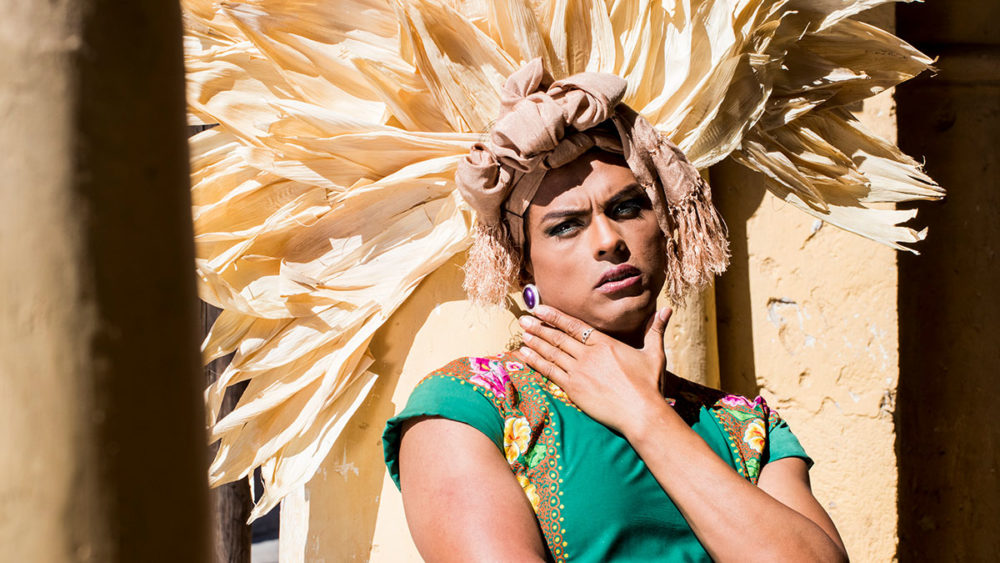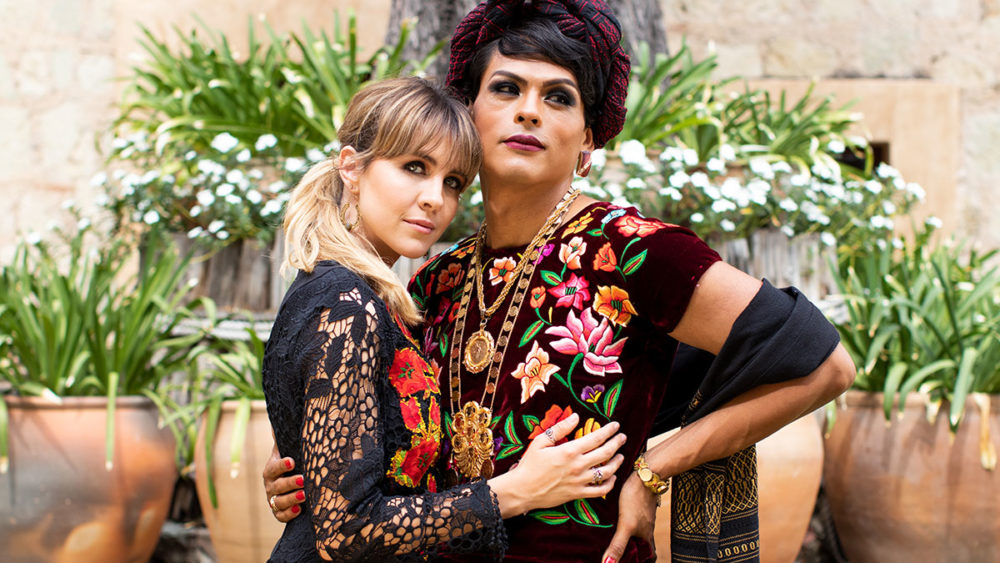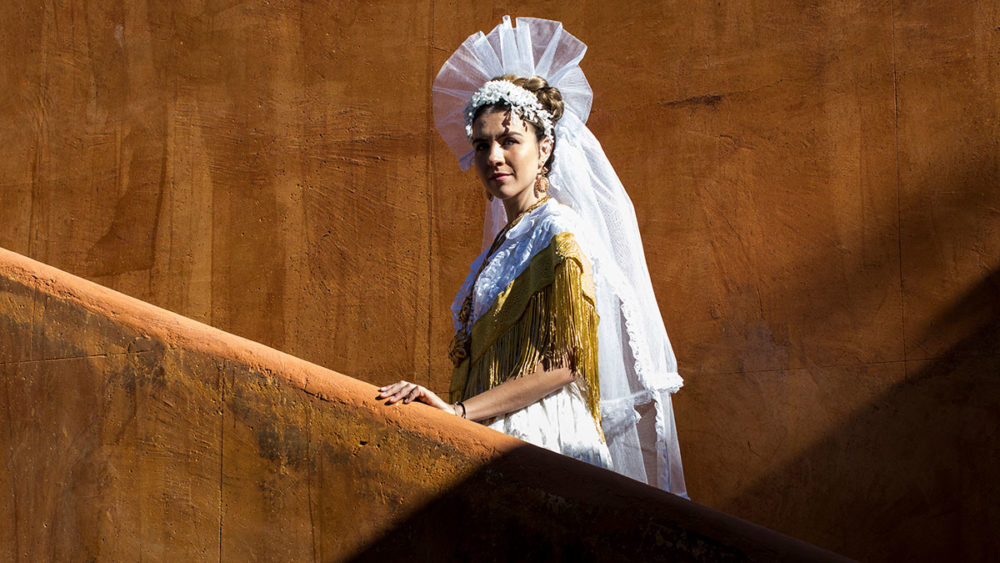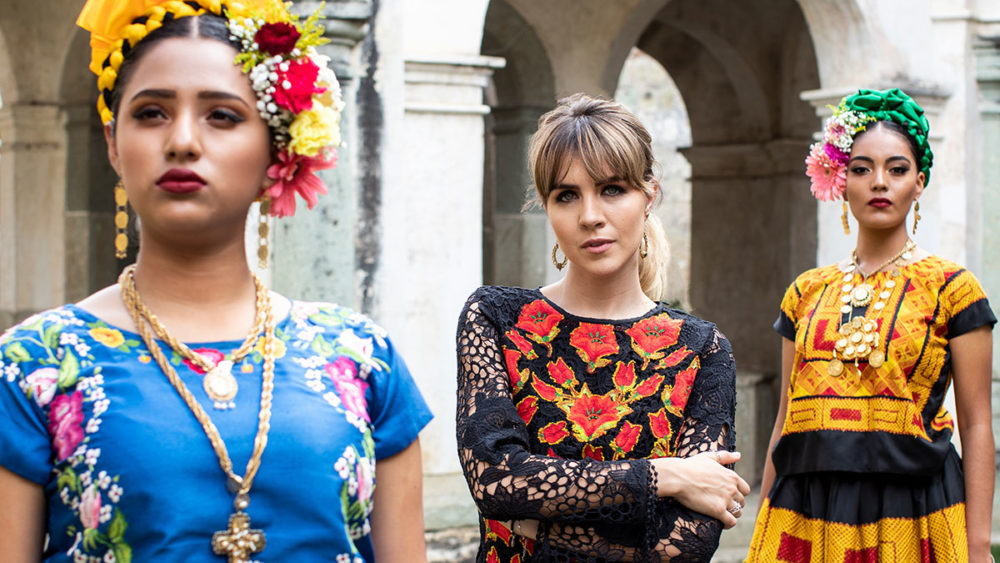
We
MUXES
come here to let go of our pain
Sometimes it’s necessary to stop and admire the beauty of just being and to have the sensitivity to show it through a magical and vibrant story like Finlandia.
We need to make seen what for many is unacceptable. In the 21st century, somewhere in Mexico, Juchitan de Zaragora to be exact, lives a community of sensitive, beautiful, and vulnerable people called the Muxes.
They take care of the elderly, educate, do work for the community and are the most fun and creative people in the world. They make their own clothing designs and flaunt them like true queens on the cover of magazines. Like other communities, they have been victim to the international textile industry stealing their designs and the intolerance of some of their own peers.
VOGUE UK AND MEXICO’S DECEMBER COVER IS MAKING HISTORY
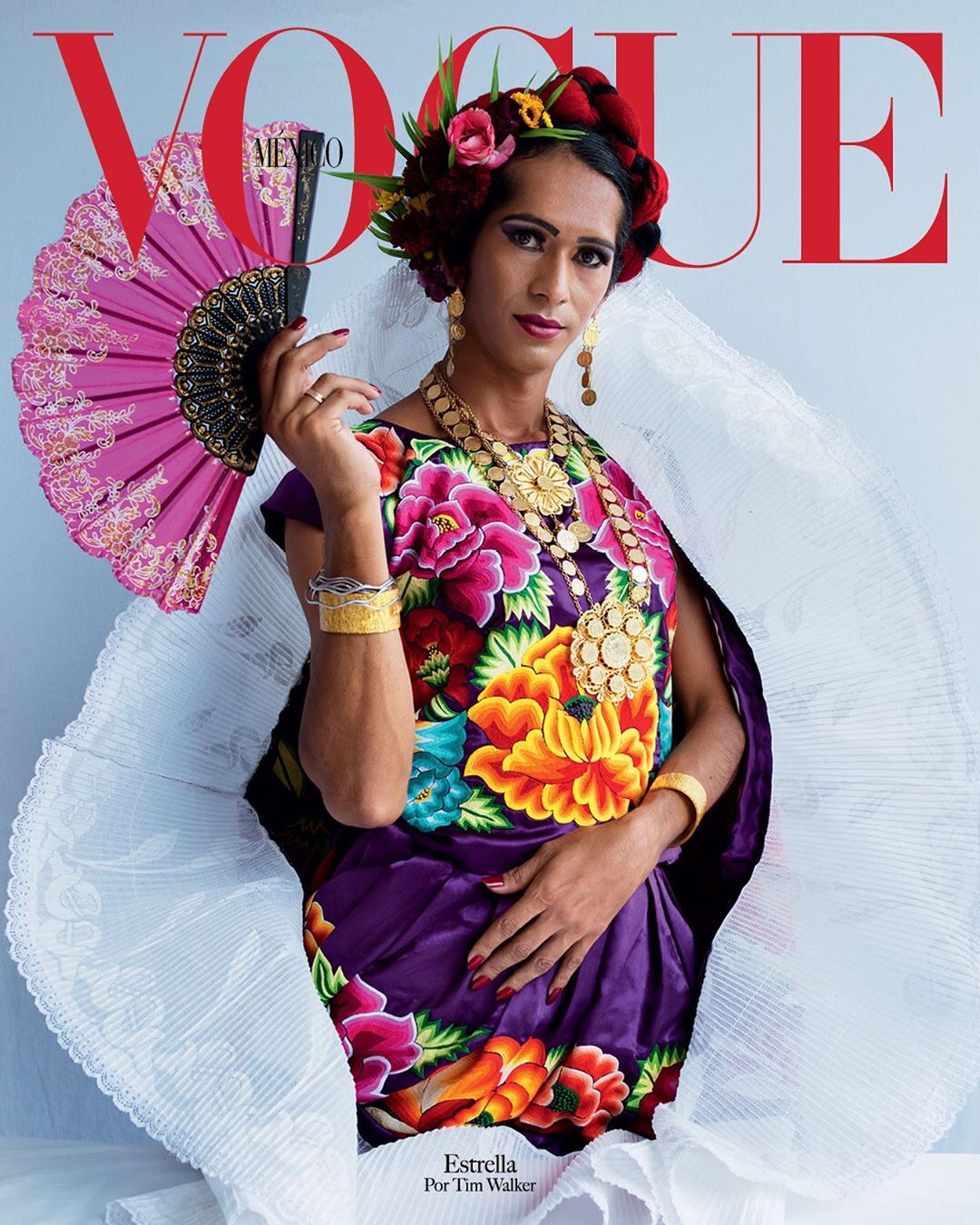
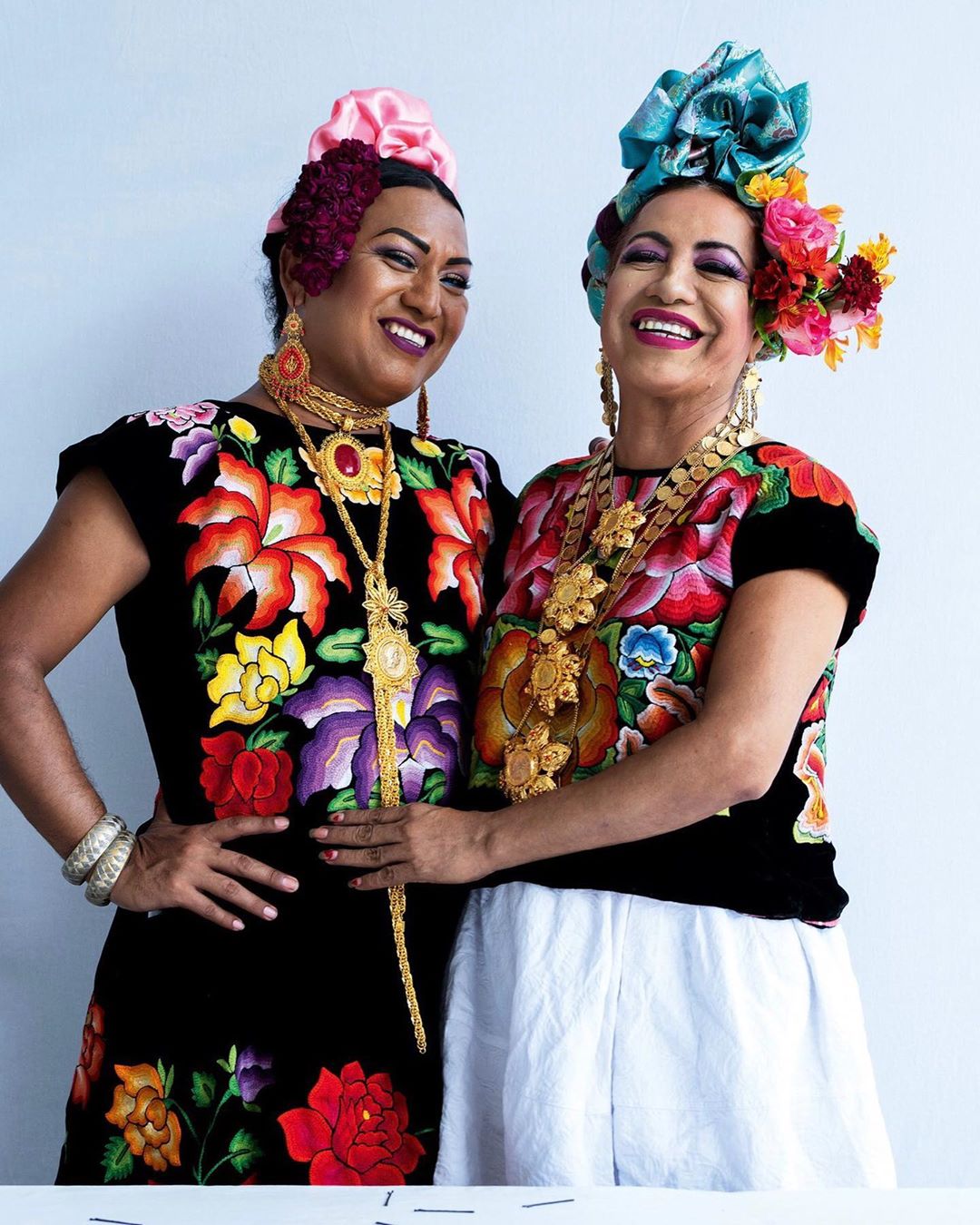
The aftermath of an earthquake. In the town of Juchitán de Zaragoza a woman scrambles through the ruins of a house for a loved one. She searches frantically through the rubble, and then stops. She has found something. Someone. With her bare hands, she claws at the rubble, the masonry and the dust to uncover a body. A face. At first it appears to be the face of a man, then as she clears more of the dust, we see that it’s the face of a woman, her ears weighed down by large gold earrings, a dust encrusted garland in her hair. It is the face of Delirio, and she is dead.
We see that same face, alive and well, a few weeks earlier. She is dressed in a traditional Zapotec dress, her hair collected in that garland of flowers, her face made up. She sits at a dressing table and begins removing her make up. The more make up she takes off, the more she reveals masculine features, her jawbone, her nose, her mouth. Slowly, Delirio reveals herself to us as a man in middle age. Except that she is not a man, and neither is she a woman. She is a muxe. Arranged around the dressing table mirror are a series of postcards of a foreign country. She looks away from her own reflection to one of those cards. and picks one up. On the front of the postcard is an image of a forest landscape: pine trees, lakes, blue skies. Finland. On the back are words of longing from a long lost love. She loses herself in that landscape so that it comes to life, the wind blowing through the tops of those conifers, which stretch as far as the eye can see.
Another day and another delivery of a postcard, all the way from Finland. This latest one is dropped off by her neighbour and friend, Amaranta, a thirty year old Muxe. Amaranta lives with her father, Héctor, who is old and deaf but never lets an opportunity go by without insulting Amaranta, expressing his shame at what his son has become. Whilst Delirio seeks refuge in the Finnish landscapes on the postcards, Amaranta seeks refuge in the company of men who she meets in the local cantina, often they are married, often they are drunk, always they promise her the world and deliver little more than a night of drunken passion.
Both Delirio and Amaranta make traditional Zapotec clothes. The hand stitched, embroidered and colourful dresses and blouses that they both wear. Amaranta sits at her clothes stall in the local market, stitching one of those very blouses. She looks up from her embroidery to see a woman in her 20s, MARTA, a Western tourist who is taking a great interest in the clothes on offer. Amaranta invites her to try on one of those traditional, embroidered blouses. She takes her to a small makeshift dressing room and a few moments later comes out wearing it. She looks at herself in the mirror and clearly likes what she sees. She takes a photo of herself and is back in the dressing room trying another blouse. She takes another photo. Then tries another outfit, and takes another photo, and another, until Amaranta becomes suspicious of her intentions. She quizzes Marta on what she is up to, but Marta is evasive, making it patently clear that she has no intention of buying anything. As the mood sours between them, a passerby makes an attempt to steal Marta’s mobile phone from her handbag. Amaranta catches the thief red handed, takes the phone back and gives it back to Marta. What was looking to be an awkward meeting becomes the beginning of a beautiful friendship between the Muxe and the Western tourist.
In another house, in another part of town a twelve year old boy by the name of Mariano stands before the mirror in his bedroom. He pulls back his hair, collects it in a garland and imagines himself as a Muxe. Through the open door, his mother SARA watches him, worried at what her boy is clearly becoming. When Mariano is not at school, he visits his new friend Delirio, bombarding her with questions about her embroidery, about how she became a Muxe and about those strange postcards she receives from that foreign land. When his mother sees him leaving Delirio’s house one day, she forbids him from ever visiting her again. She is terrified that he will follow in Delirio’s footsteps and become a muxe. But there is something his mother is hiding, that makes her react in the way that she does. Something about her husband, Mariano’s father, about what he became and why he left her, and as Mariano gets older he begins to ask his mother questions too.
As Delirio loses herself in the postcards from her long lost lover, bringing those beautiful forest landscapes to life, she begins to wonder whether these postcards have been sent not from Finland but from somewhere closer to home, from someone she knows. It could be an admirer, or it could be someone trying to cushion her from the harsh reality of a past heartbreak.
Marta and Amaranta bond more every day as Marta gets a crash course from Amaranta in what it is to be a Muxe in this town, the highs the lows, the difficulty of making ends met from their clothes making and the bitter reality of what love means for a Muxe. Marta is a shoulder to cry on, but Amaranta’s suspicions about Marta and what she is doing there in the first place, grow. Is she a true friend or just another foreigner come to steal their designs and livelihoods to mass produce them for a western market?
We accompany Maraiano on his painful journey as he is bullied at school, harassed by his mother, asking questions for which he receives no answers. Despite his mother’s warnings, he continues to seek solace in the company of Delirio, who teaches him to accept himself, as he slowly blossoms into a Muxe.
Unbeknownst to them, disaster is just around the corner. Only Delirio has an inkling of what is to come. She feels it in the air, in the restlessness of the caged birds that she keeps and that she will set free, and in the signs and omens that she is tuned into. But when disaster strikes there will be no hiding from its force, not in the buildings, not in the streets, and not even in the breathtaking forest landscapes to which Delirio escapes on a daily basis, and which to her have become more real than life itself.
DELIRIO
“
Delirio is a spiritual leader, and mentor for the young Muxes.
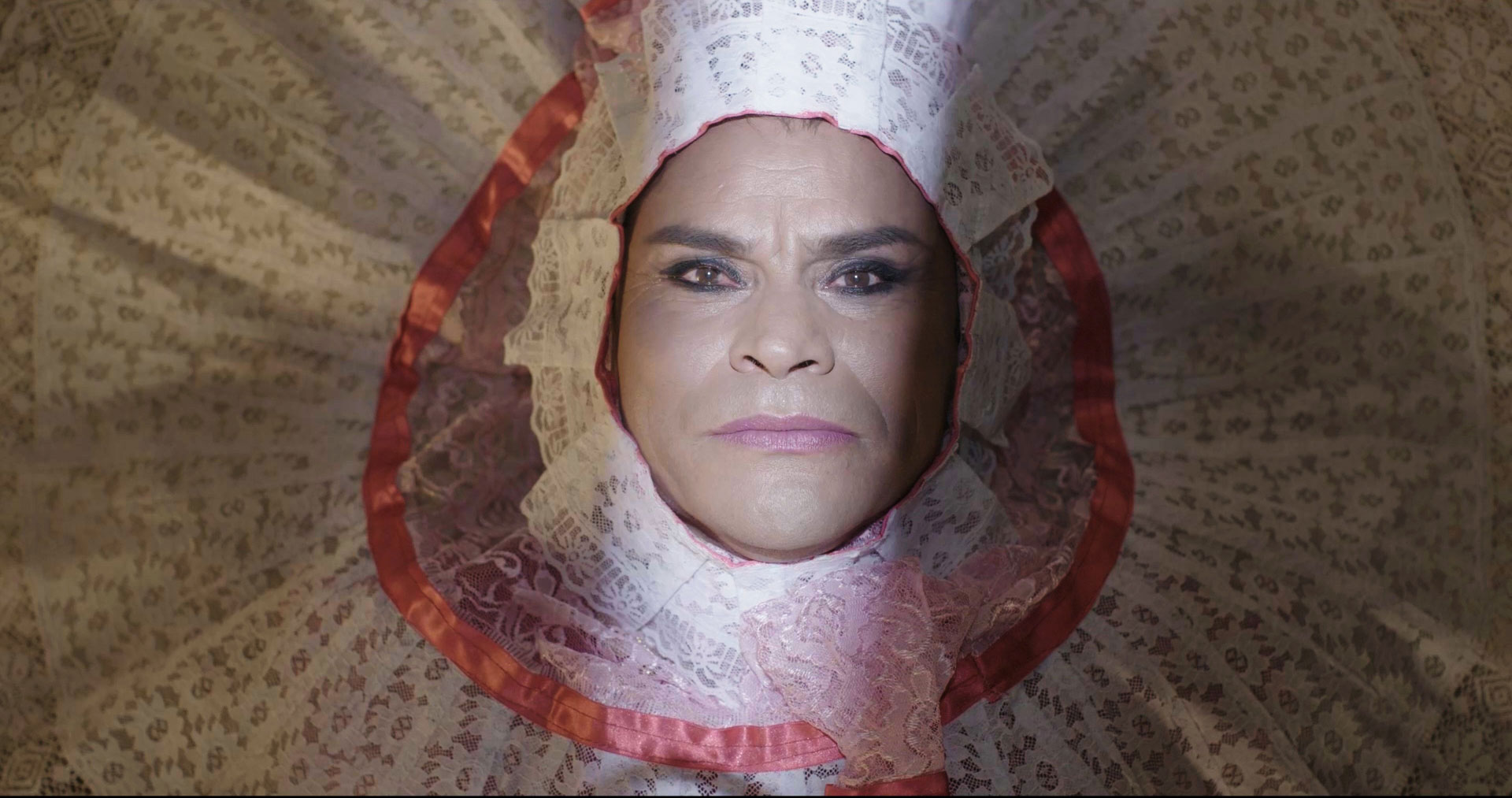
A devastating earthquake hits Oaxaca and causes hundreds to fall victim to its effects. The drastic physical effects are felt in Mexico while across the globe its emotional effects are felt in Finland.
This seismic movement has caused an emotional tremor in the lives of people with secrets, frustrations, and hidden relationships that will materialise amongst the debris, screams, and dust.
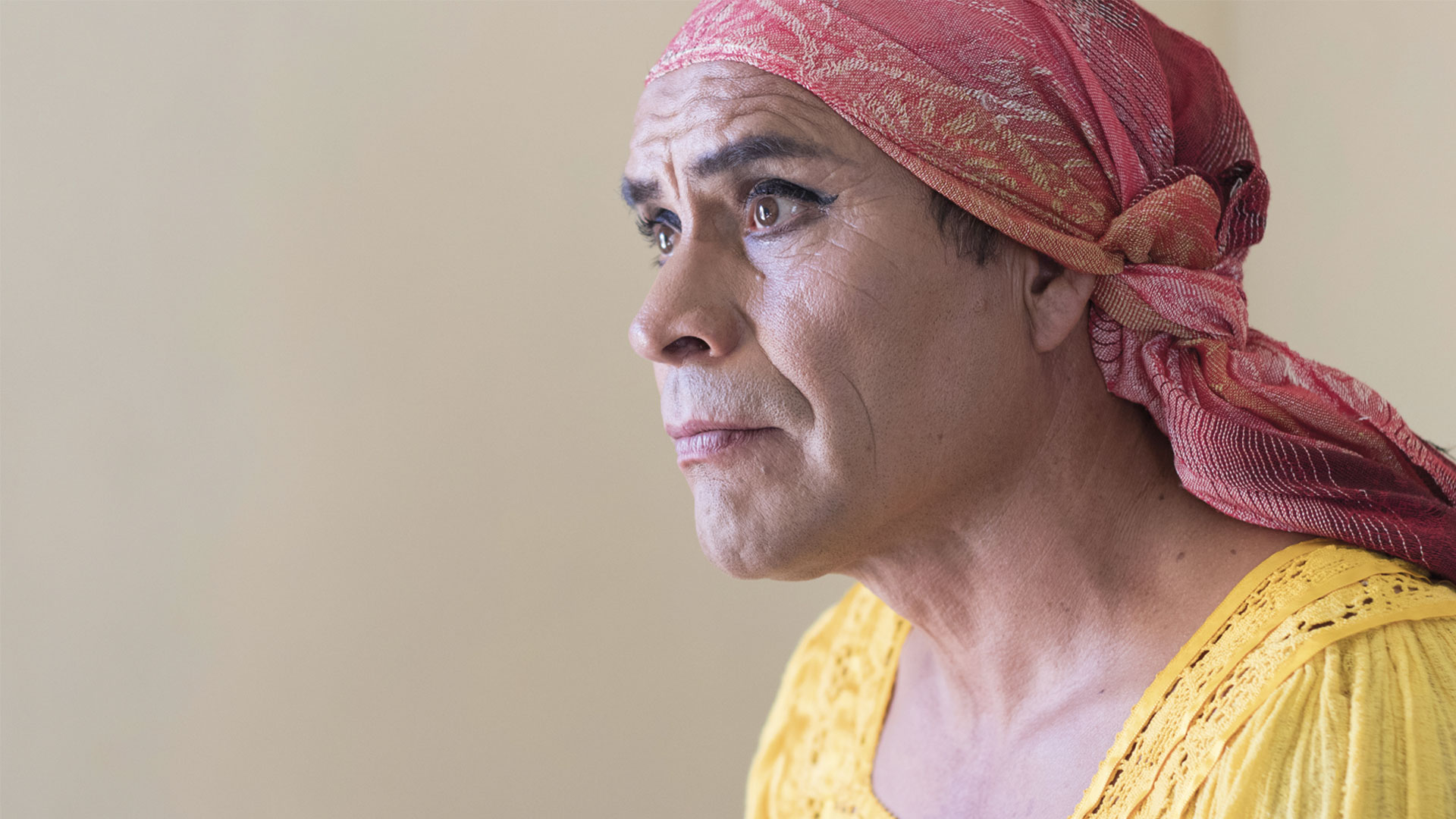
After this earthquake, nothing will be the same for the lives of the Muxes.
The first body found after the earthquake belongs to Delirio, an elderly Muxe. They are not a man or a woman. They are a pioneer that has fought for decades so that people like them could find their place in a patriarchal and sexist society. Delirio is a spiritual leader, and mentor for the young Muxes.
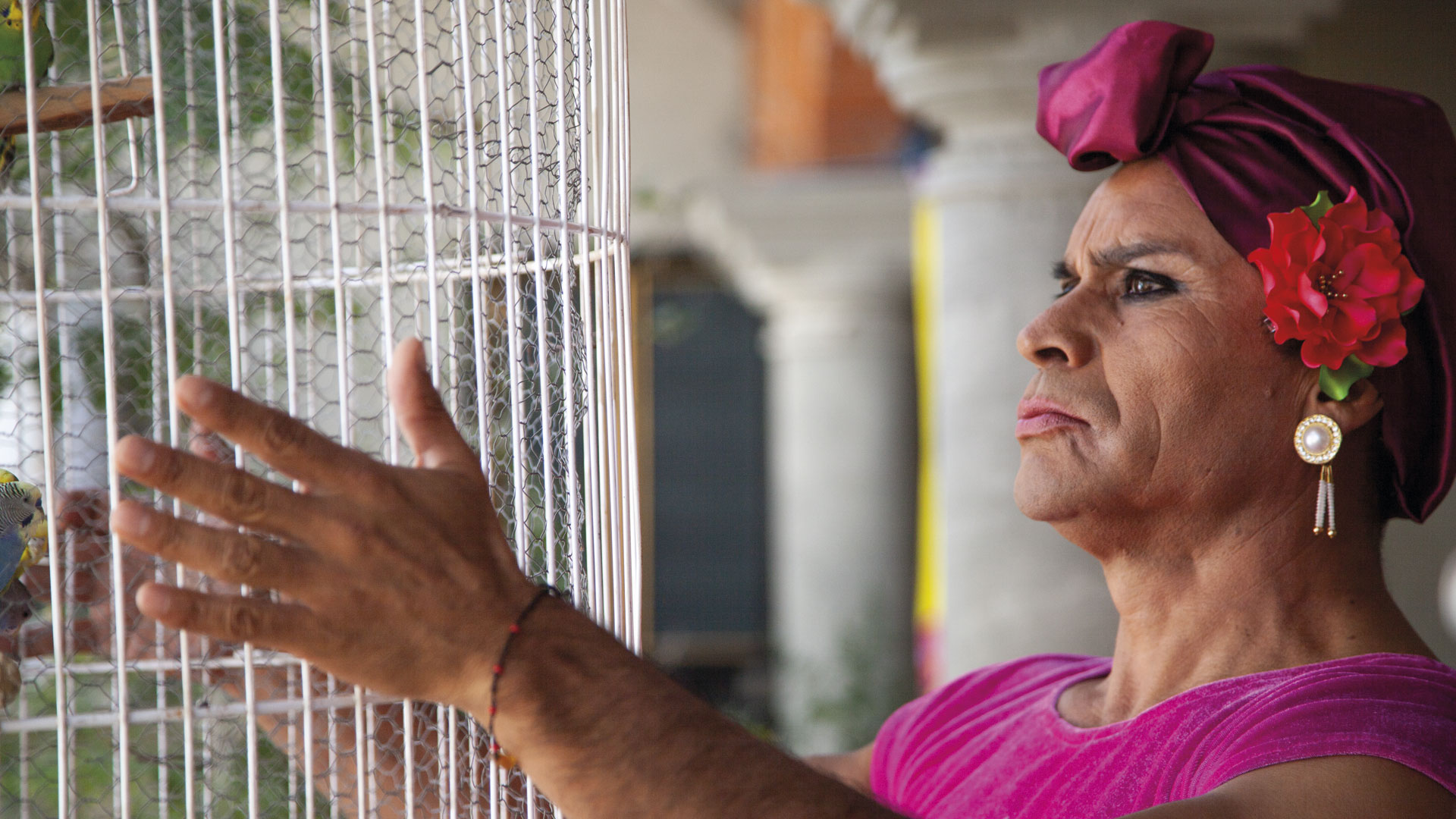
They also have a special gift:
They have premonitions of death, even of strangers
MARIANO
Mariano is a young boy that has felt different since the day he was born.
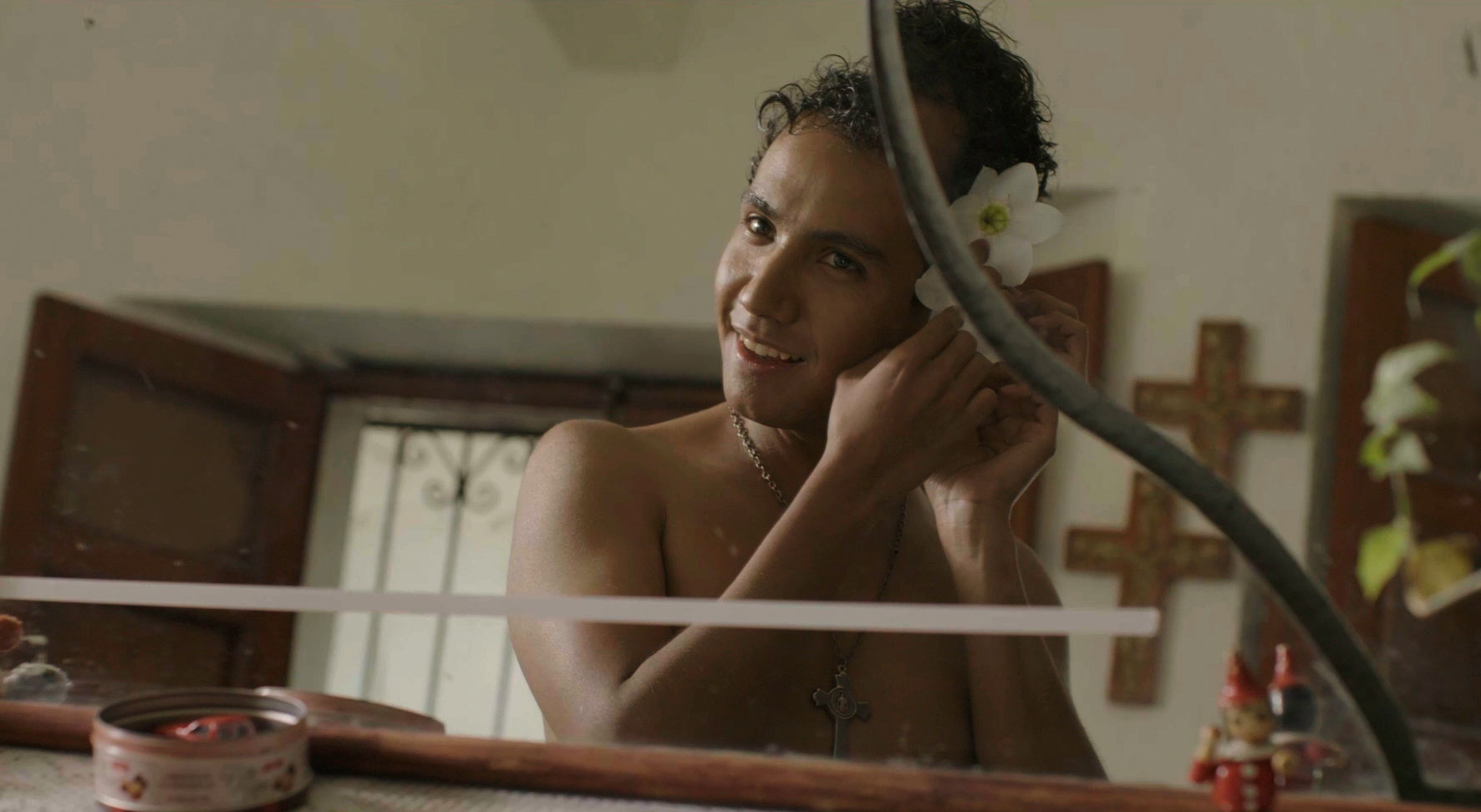
He shares a strong bond with Delirio. He spends a lot of time with them, and considers them to be like a second parent that has taught him how to both knit and cook.
Delirio gives him the advice he needs in order to find out what his heart truly desires, so he can accept his destiny and become a Muxe.
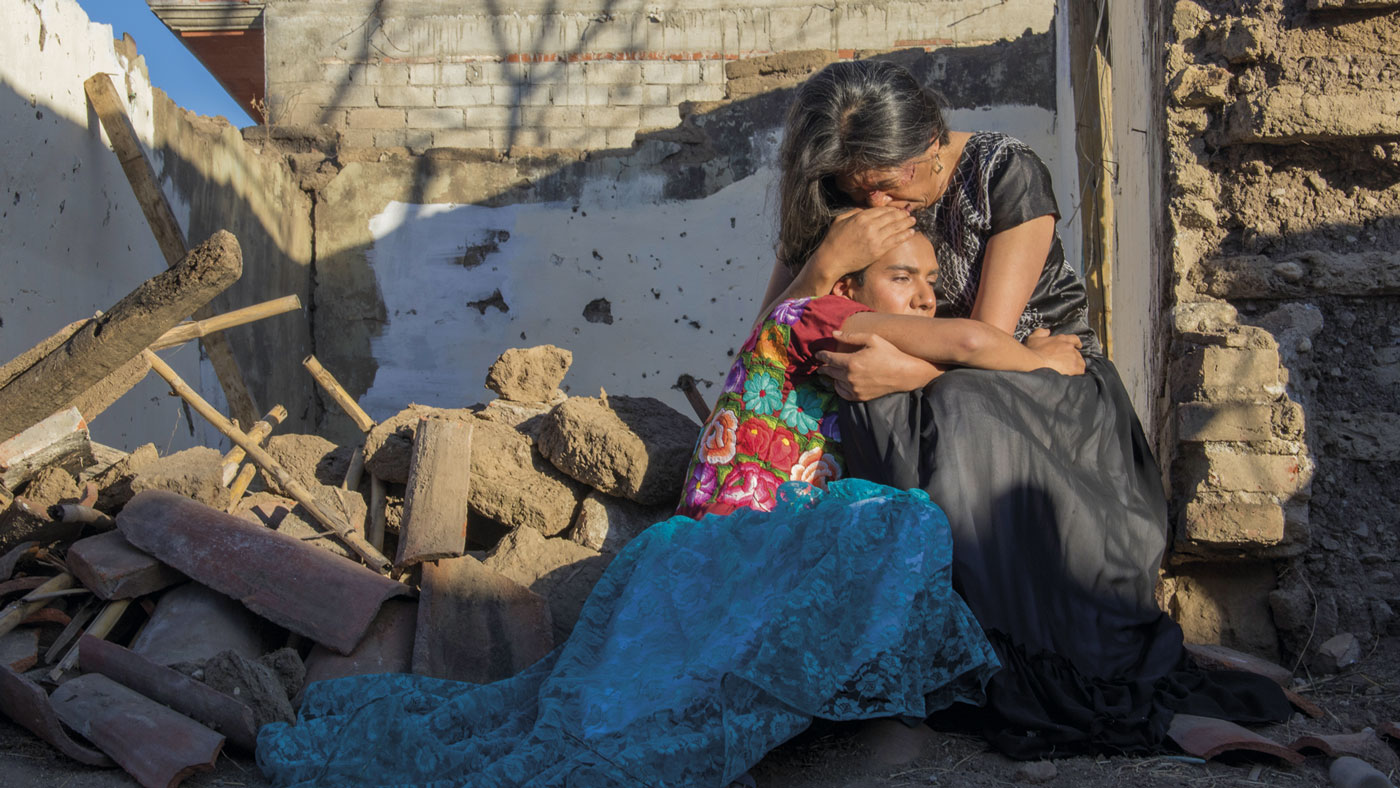
After this earthquake, nothing will be the same for the lives of the Muxes.
Mariano’s father abandoned them when he was a baby.
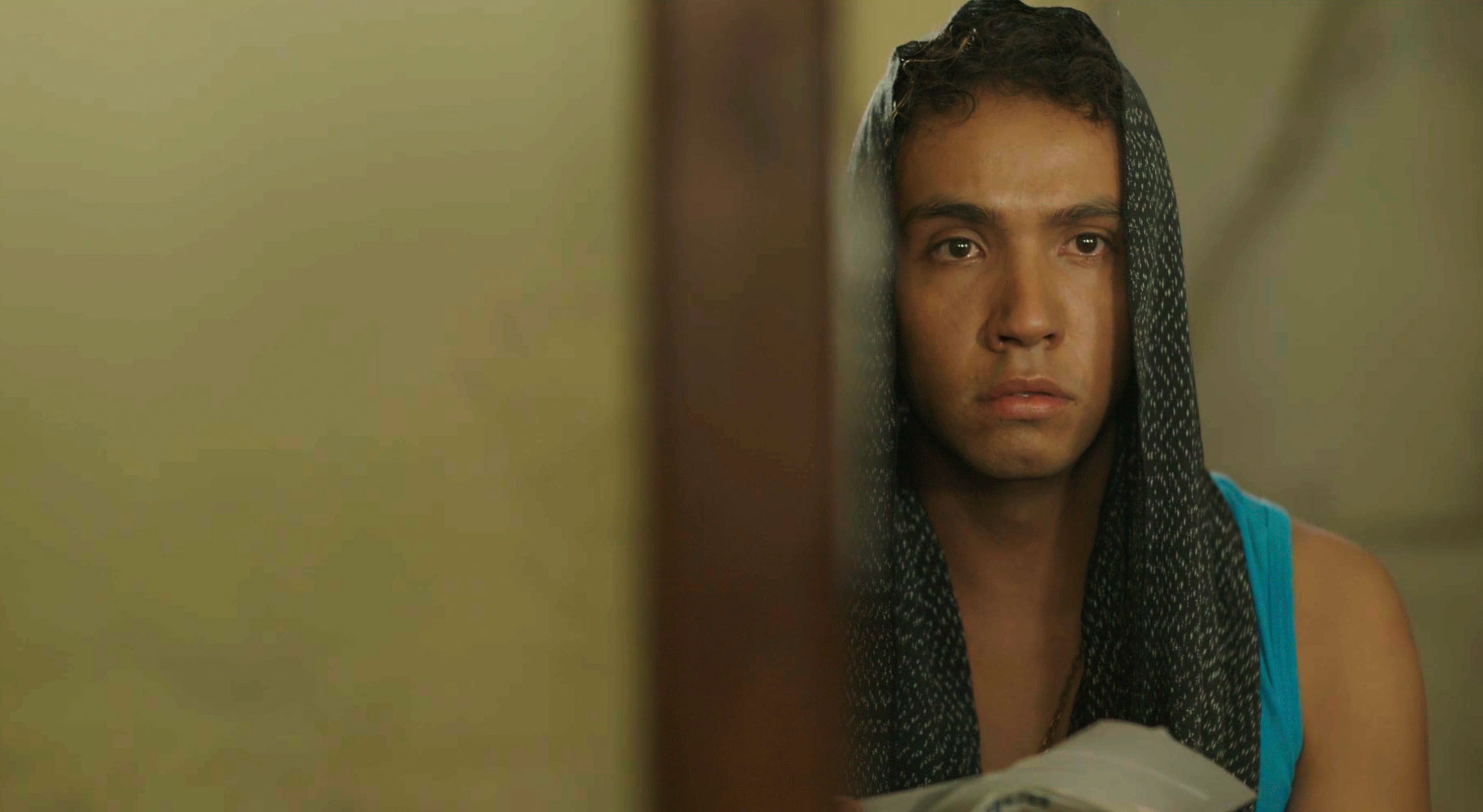
He left his hometown for good when he realised that he felt the same as his son and would never be happy in such an oppressive and intolerant place.
AMARANTA
Amaranta takes care of her father, a loathsome, aggressive, and alcoholic man who has been deaf for 20 years and blames her for his disability.
Despite being totally deaf, Amaranta’s father has been cursed and is only able to hear the waves of the ocean washing up on the shore.
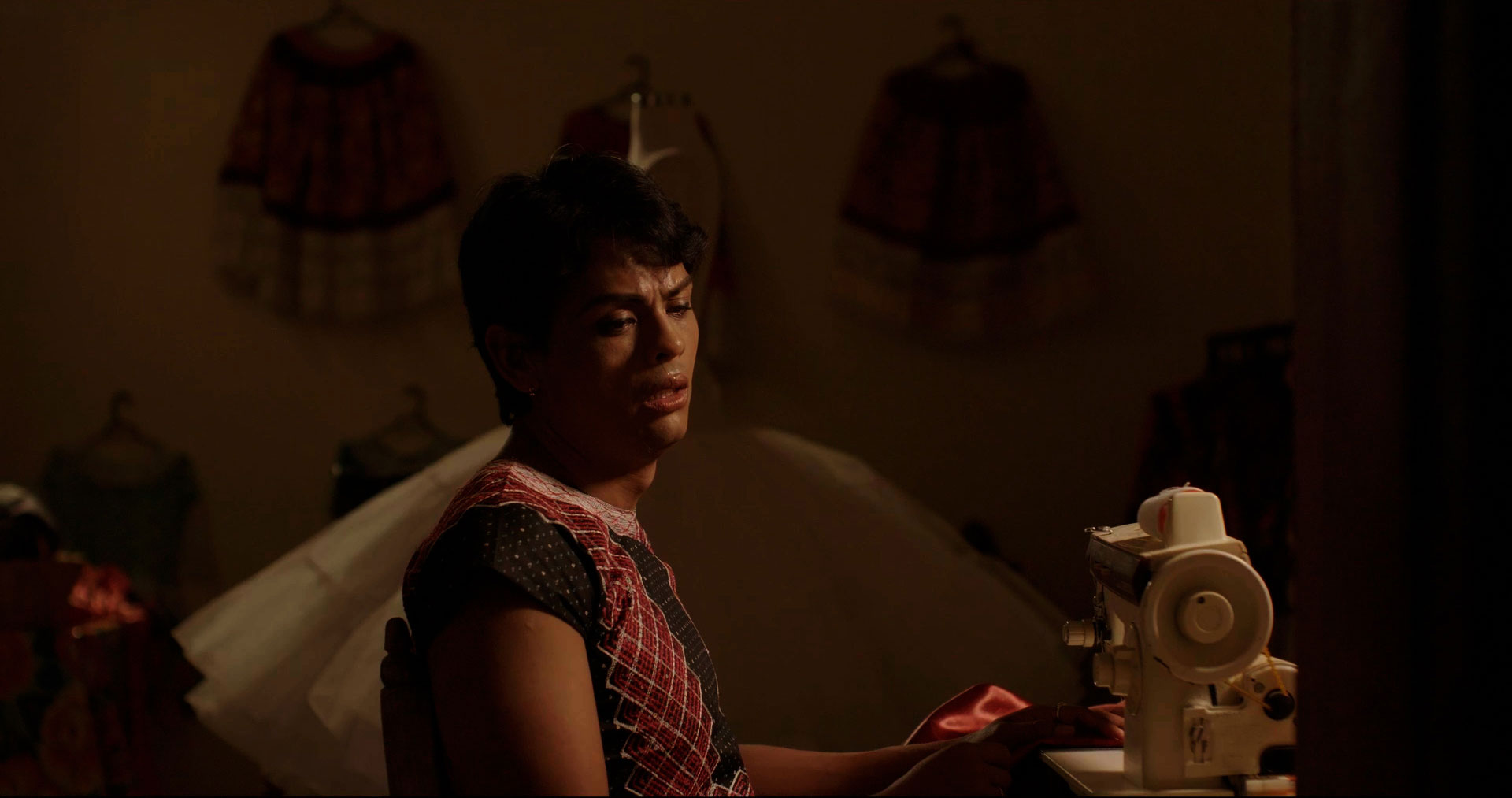
Amaranta’s loneliness and the terrible violent home in which they lives have turned her into a sad, resentful, and seemingly evil person. They write made-up love letters passing themselves off as an old lover of Delirio.
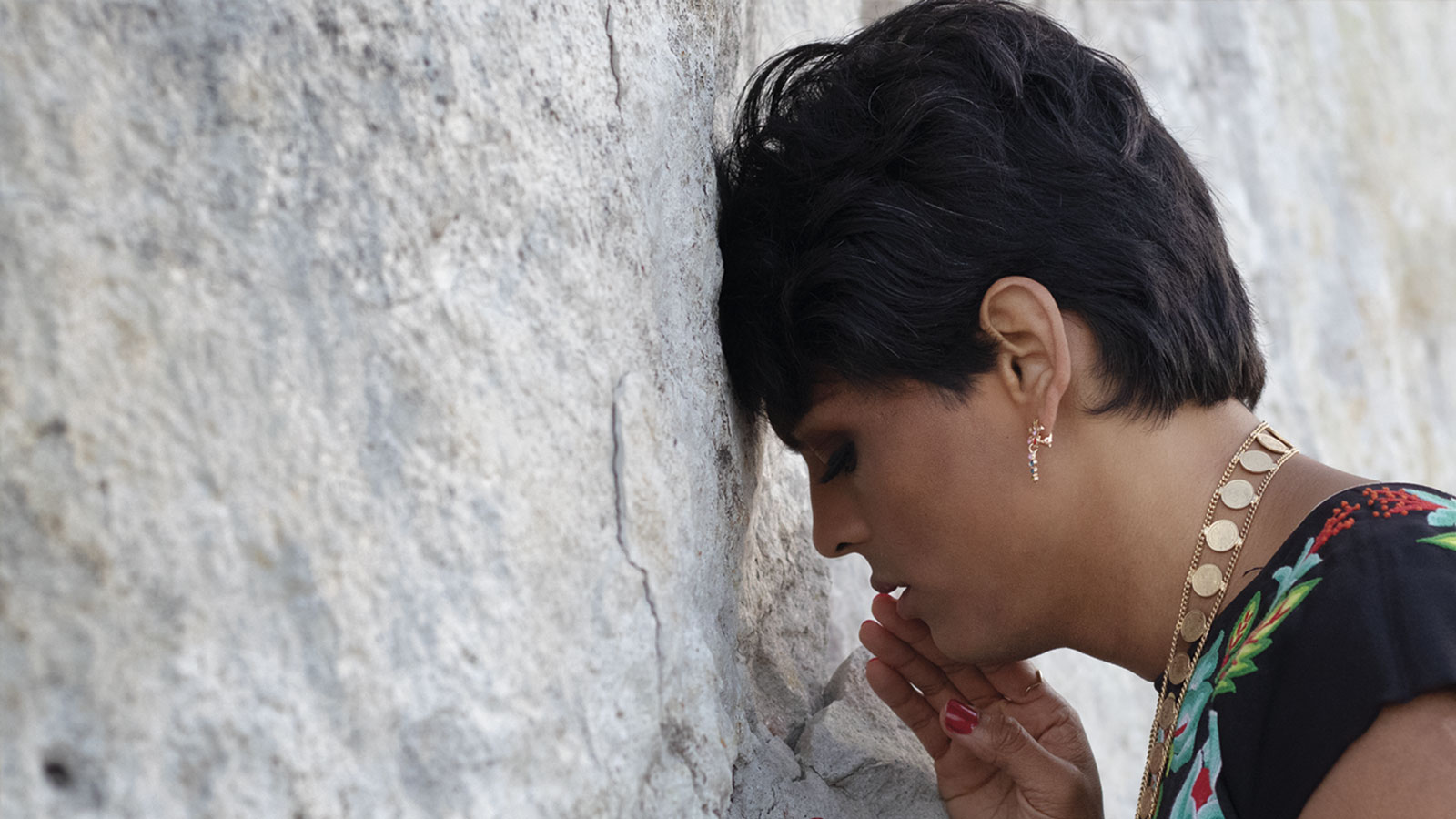
Those letters are the only comfort for her sick heart.
They have spent their life wishing for the death of their father until eventually the earthquake takes his life and sets them free from their toxic relationship.
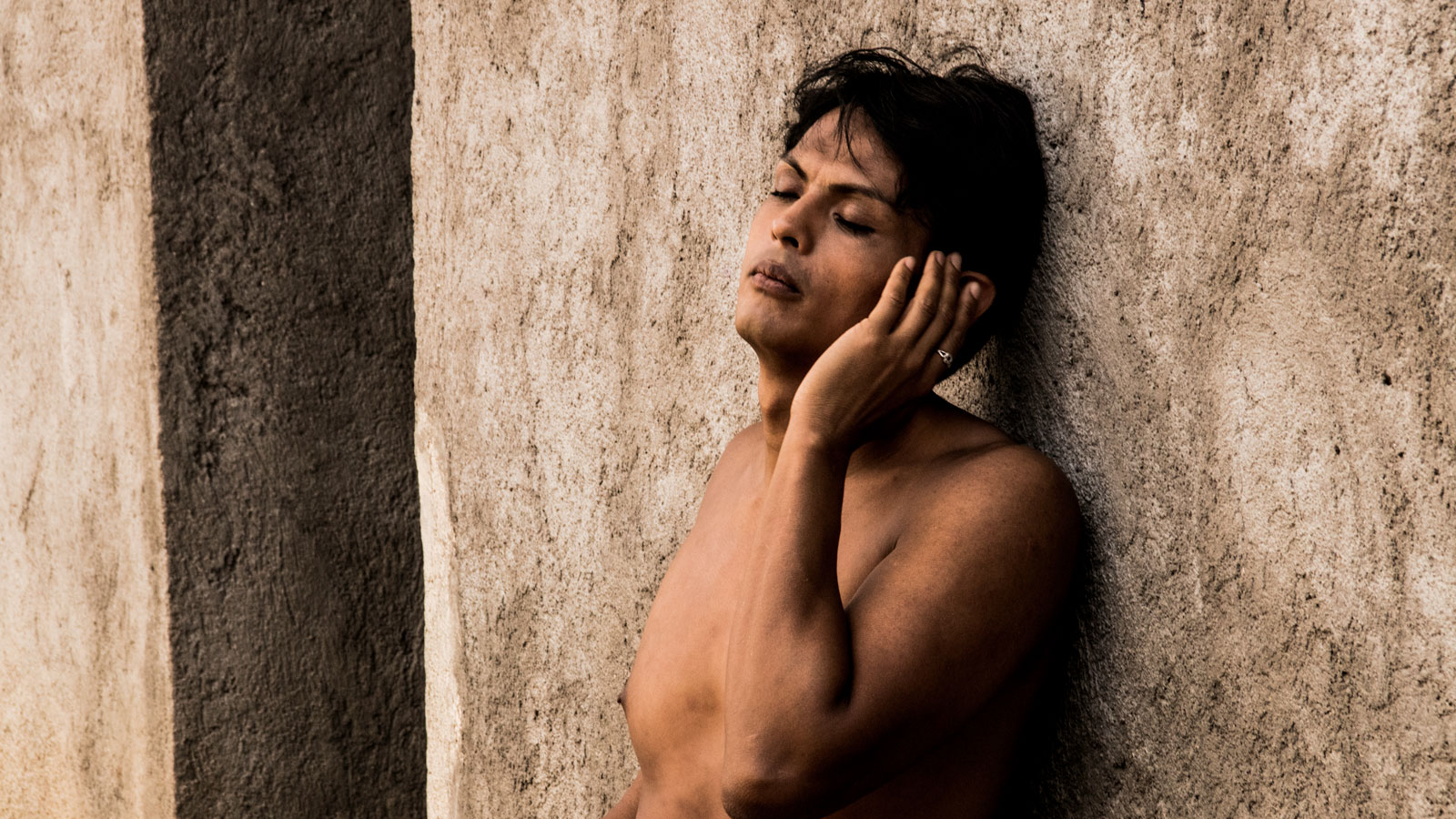
Earthquakes are the way in which the Earth can free itself of its ghosts.
The Muxes of Oaxaca will do the same with theirs.

“Canon supports FINLANDIA because it’s a project that speaks through
images. The director of photography, David Palacios, shoots the best
shots using his C700 camera and the latest lenses, SUMIRE, which gives
the film a picturesque touch and extreme sensitivity to each one of the images.”
Carlos Castán-Canete, IP Manager Canon España
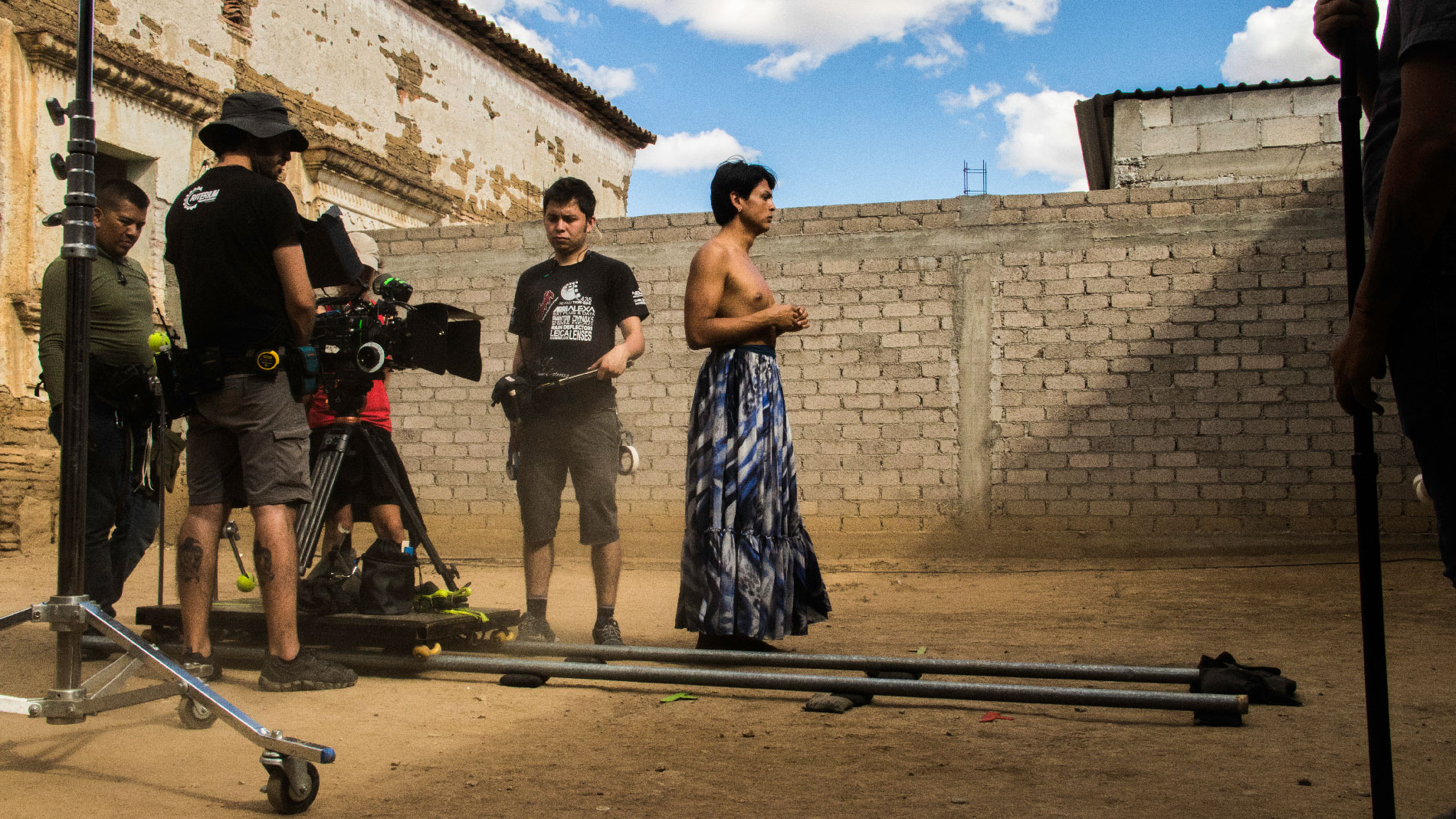
“The film has made me understand the importance of respecting and empathizing with these amazing human beings. Although in our society people may not understand its purpose, the Muxes show a sensitivity and generosity for their elders and the community that we would like to have as well.”
NACHO RUIZ CAPILLAS, EDITOR
“The film has made me understand the importance of respecting and empathizing with these amazing human beings. Although in our society people may not understand its purpose, the Muxes show a sensitivity and generosity for their elders and the community that we would like to have as well.”
NACHO RUIZ CAPILLAS, EDITOR
Cast
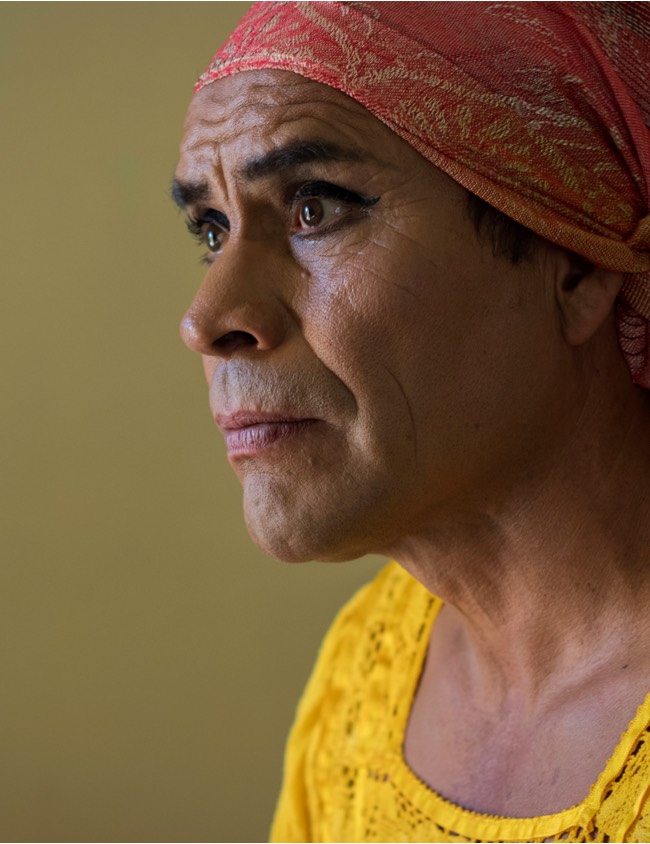
NOÉ HERNÁNDEZ
“What I experienced with the Muxes has been tattooed on my skin like a fight between the wind and waves that exists within their resistance.”
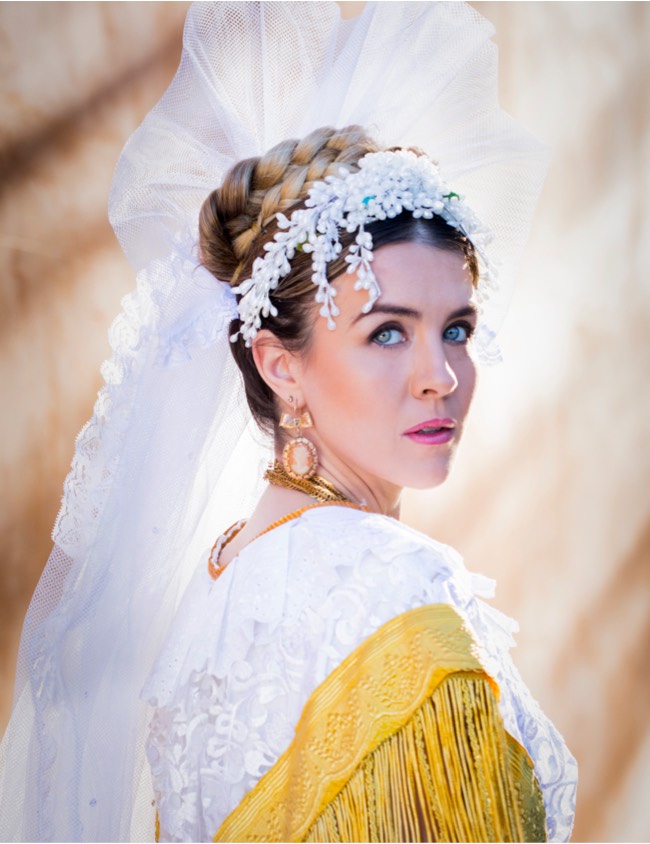
ANDREA GUASCH
“Discovering, knowing, feeling Mexico. Connecting, admiring, and empathizing with the Muxes.”
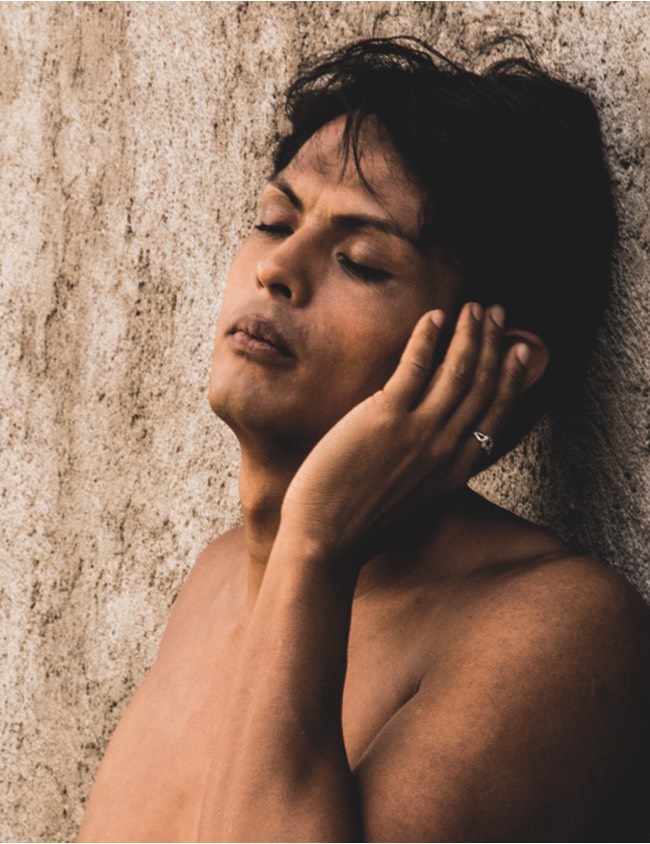
CUAUHTLI JIMÉNEZ
“Amaranta showed me that you have to be loyal to yourself until the very end, even if the rest of the world is falling apart.”
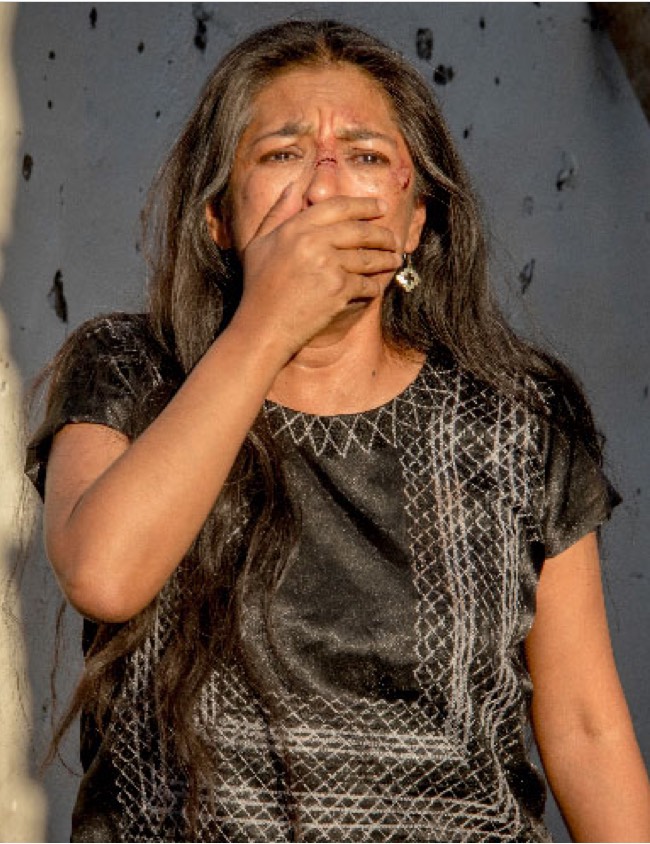
ÁNGELES CRUZ
“She represents the castrating and frightening position these mothers take when confronting the possibility of their sons being a Muxe.”
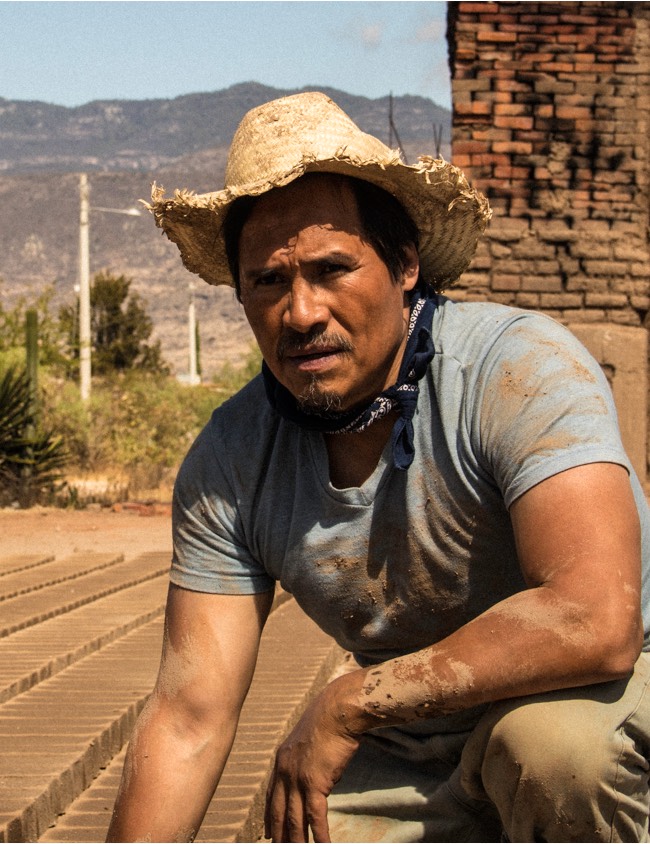
LEONARDO ALONSO
“I had to break myself open and move past my limits, leaving behind other characters I’ve portrayed and performances I’ve given.”
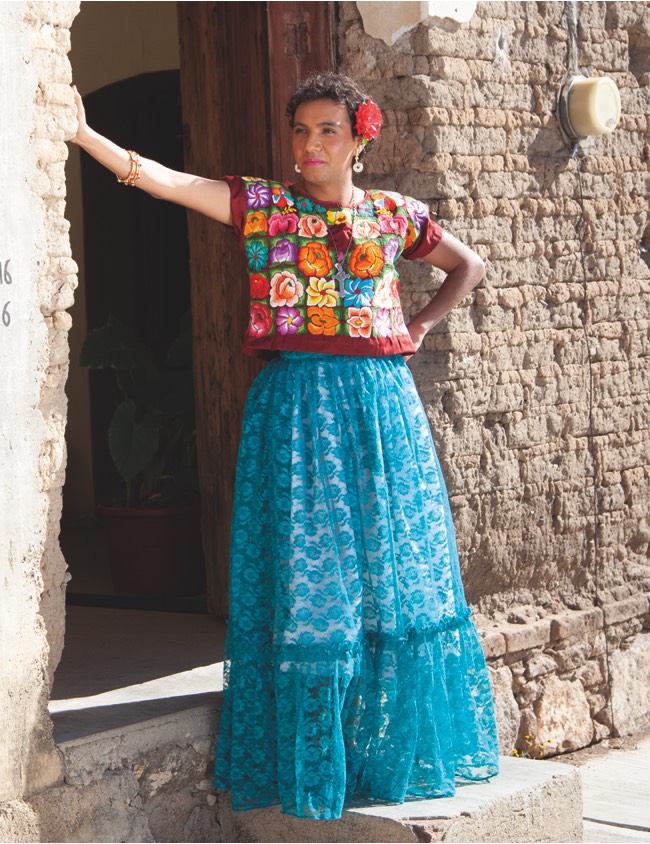
ERICK ISRAEL CONSUELO
“I spoke through Mariano about the acceptance between what we are and what we should be according to others.”
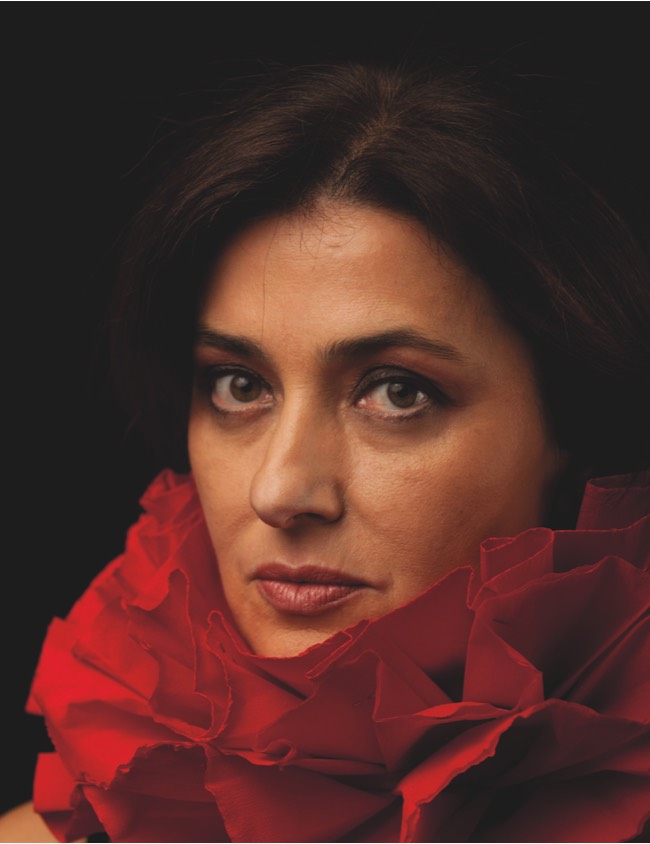
RAQUEL MENOR
“The Muxes’ stories deserve to be told to the whole world. Their contribution to society must be both recognized and protected.”
Hernández received the Ariel Award for Best Actor. He recently has won an award for Best Actor in an International Narrative Film at the Tribeca Film Festival of 2020 for his performance in Kokoloco.
Was born on November 10th. Following his studies of Dramatic Arts at the Autonomous University of the State of Mexico, he became a high school teacher and founded an experimental theater group. After relocating to Mexico City, he was offered small roles on several films including Propiedad Ajena and Sin Nombre. His first lead role was Lino Valdez in Miss Bala which gained him popular recognition and earned him a nomination for an Ariel Award for Best Actor. Hernández was praised for his performance in the role of Canelita in the film la Tirisia (2014), which won him the Ariel Award for Best Supporting Actor that year. He received further recognition for playing gang leader Martín in the Mexican film 600 Millas for which he won a second Ariel Award for best Supporting Actor in 2016. For his leading role in the film Ocho de Cada Diez.
“Beyond the complexity of playing the role of “Delirio,” my research in order to get to know the Muxes in their day to day life, their land, their conflicts, their bravery, their strength, to breathe them, to live them…it changed my life. What I experienced with the Muxes has been tattooed on my skin like a fight between the wind and waves that exists within their resistance. Thank you, FINLANDIA.” Noé Hernández
Is a Spanish actress, singer and dancer. She began her acting career on the Disney Channel, having appeared on several TV series worldwide from 2005 to 2015.
Later on she starred in the musical Hoy No Me Puedo Levantar in Madrid as well as in Marc Carrete’s thriller film After the Lethargy. She’s currently the lead character in one of the most famous musicals in Spain, La Llamada, which is both running in Madrid as well as touring the country.
“Discovering, knowing, feeling Mexico. Connecting, admiring, and empathizing with the Muxes. Experiencing the injustice, the talent, the obstacles of this reality being so different from my own has meant returning home with a backpack overweight with eternal momentos made of light from a job well done. Marta has provided me with a unique opportunity, a life experience even. I was blown away by Finlandia and everything that it conceals. Now, it’s your turn.” Andrea Guasch, actress.
Is best known for appearing on season two of Fear the Walking Dead as Reynaldo and Narcos: Mexico (Netflix). Since 2005 he has performed in several plays including BORIS GODUNOV with the Catalan theatrical group “La Fura dels Baus” (Mexican Tour 2009). He first appeared on television in the HBO series Capadocia (2008). In 2018 he starred as Chemo in TV Azteca’s Tres Milagros. He has performed in many films such as Tigers Are Not Afraid (directed by Issa López), Los Adioses (directed by Natalis Beristáin), Carmín Tropical (directed by Rigoberto Pérez Cano), Las Buenas Hierbas (directed by María Novaro) and Dos Fridas (directed by Ishtar Yasin Gutierrez).
“Painting my nails, tweezing my eyebrows, and living in the elegance of simplicity. Surrendering myself completely to love even if it’s unrequited. Resisting the rejection of a glance or the disapproval of a strike. Resisting in order to live and be beautiful. Laughing. Sharing. Being a friend. Amaranta showed me that you have to be loyal to yourself until the very end, even if the rest of the world is falling apart.” Cuauhtli Jiménez, actor.
Is both an actress and film director born Heroica Ciudad de Tlaxiaco in 1969. She studied at the Miguel Cabrera Artistic Education Center in Oaxaca and then graduated from the Theatrical Art school of INBAL. She has won several awards such as the Colón de Plata for Best Actress at the Iberoamerican Film Festival in Huelva (2017), and has been nominated for two Ariels for Best Actress in the films La Tricia (Cómo Curar la Tristeza (2018)) and Rito Terminal (2000) as well as a Sweden Academy Award for Best Actress in the film La Hija del Puma (1994).
“Sara is both stubborn and stuck in her ways. She thinks like most people, and she represents the castrating and frightening position these mothers take when confronting the possibility of their sons being a Muxe. As an actress, the role represented a huge challenge for me, as my way of thinking doesn’t align at all with that of the character. However, her change of heart due to a mother’s love was quite a journey for me.” Ángeles Cruz, actress
Was born on February 28, 1974 in Mexico City. Having debuted in January 2005 and with 10 years of acting experience, Leonardo has been an outstanding figure in Mexican theater in recent years. He has done various acting courses and seminars as well. He made his film debut in Spiral (2008) and later appeared in films such as Unnamed (2009) and Gang Family (2014). He has appeared in series such as The Charm of the Eagle (2011), Cappadocia (2012), Yago (2016), El Cesar (2017), and Sincronía (2017) Alonso has recently received an Ariel Award nomination for Best Actor in the film El Vigilante (2016).
“Upon learning of the story, I wanted to play the role of Hector, then after reading the script, I knew that I wanted to be a part of it. I had to break myself open and move past my limits, leaving behind other characters I’ve portrayed and performances I’ve given. The script was so powerfully written from the heart that even during the low moments it was more than I could handle. I loved the challenge that is FINLANDIA.” Leonardo Alonso, actor
Was born in 1993. He has appeared in the TV series Zero Zero Zero, an Italian-Mexican production for Amazon which had the collaboration of prestigious directors such as Stefano Sollima, Pablo Trapero, and Janus Metz. It was first shown at the Venice Biennale in 2019 and then released on Amazon Prime in 2020. In 2019 and 2020, he appeared in seasons 2 and 3 of Narcos: Mexico (directed by Amat Escalante, Leonardo D’Antoni, Andrés Baiz, and Marcela Said).
“Mariano, Finlandia, and the Muxes have allowed me to see the world from a new point of view by recognizing the femininity and strengthening the masculinity that already lived in my core. Free of labels we have all had our moments of learning about and discovery of ourselves and from that place with our souls connected, I spoke through Mariano about the acceptance between what we are and what we should be according to others. The transition of Mariano to Xquenda has shown me the bravery of a human being is by listening to yourself.” Erick Israel Counsuelo, actor
Is a Spanish actress, producer and voice over artist. After completing her studies at the Viesqueswood Theatre School, she made her screen debut with the short film Berenice. In 2019 she starred in the music video “Aleph Vokalensemble” (directed by Jorge Tejerina). She next starred as Marta Matamoros on the comedy series Yogurfrousen (directed by Evgeny Yablokov). She has dubbed several films such as Origen and Ocean’s Eleven. She is currently preparing for her lead role for the upcoming comedy series titled Canapé Club (directed by Guido Belforte and Horacio Alcalá). She will also be appearing in the feature film The Worm King (directed by Sonia Escolano).
“I couldn’t refuse the role when they asked me to be Lorena and be a participant in the fight against stealing designs put forth by FINLANDIA. The Muxes’ stories deserve to be told to the whole world. Their contribution to society must be both recognized and protected. It’s a great honor to have produced it and be a part of the cast.” Raquel Menor, actress and producer
“The world of the Muxes is so luring and so magical that when my eyes saw it, it became entwined with my heart.”
JESÚS CABALLERO, SCREENWRITTER
“The world of the Muxes is so luring and so magical that when my eyes saw it, it became entwined with my heart.”
JESÚS CABALLERO, SCREENWRITTER
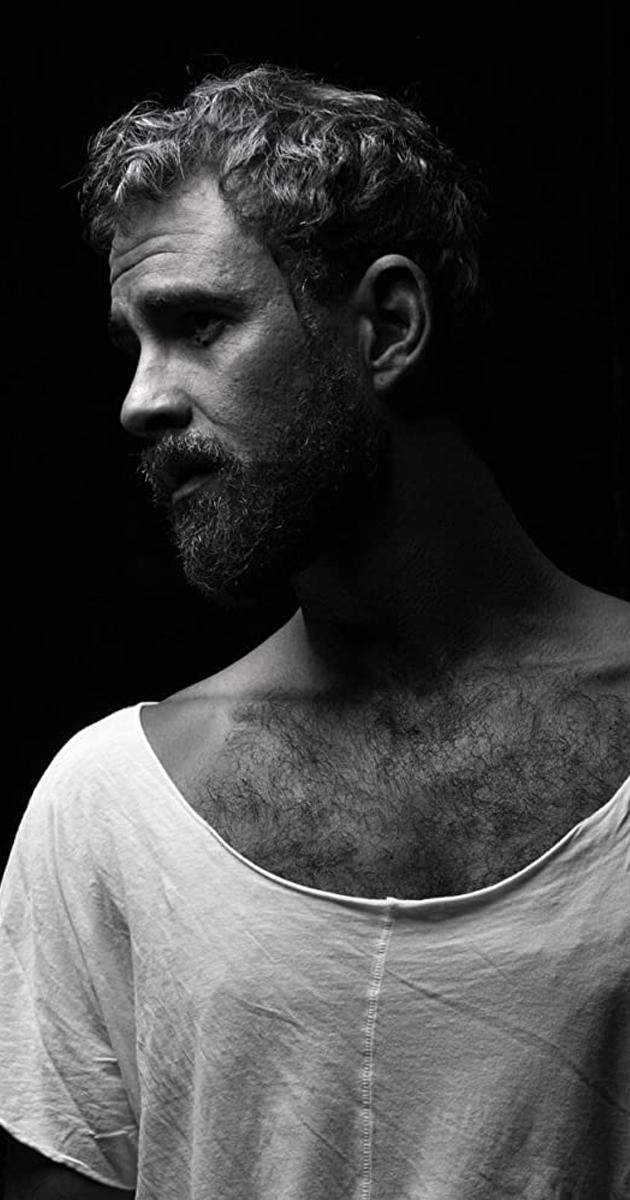
Director
HORACIO ALCALÁ
Horacio Alcalá, born in Guadalajara, Mexico in 1978, is a film director and screenwriter. He acquired his experience through independent projects in Berlin, full length films in France as well as short films and documentaries in Spain. His work has garnered worldwide recognition from prestigious festivals such as the International Film Festivals in Boston, New York, Tokyo and Palm Springs. After 7 years working at the Cirque du Soleil, Horacio moved to Madrid and began working as a director on different projects focusing on visual arts and circus narrative. Currently he is developing documentary projects for the European Union through the CBC programs (Cross Border Cooperation) and the TESIM program of the European Commission, while also directing documentary short films on human rights issues for UNHCR.
2019. My Kingdom Come. Biographical documentary about Galician boxing champion who is now confined to a wheelchair, Simón Gonzalez.
Co-produced with Mexico and Ecuador / 90 min / Color / Format 4K.
2017. “Creatures”. Documentary Series / 6 x 25 In collaboration with Cirque du Soleil and Daniele Finzi Pasca.
2016. “Africa mía”. Documentary Series /6 x 7 min / European Commission and UNHCR
2014. A ras del cielo / Grazing the Sky. Documentary Film / 87min. Project carried out with the help of Programa Ibermedia and ICAA, in collaboration with “Cirque du Soleil” and co-produced with Mexico and Portugal.
2012. Balkan Documentary Film / 56min. For the Goethe Institut München and Adama Mizkieviz Institut. Recorded in Serbia, Bosnia and Herzegobina, Greece, Turkey and Bulgaria
2011. “Embrace my memories” Fiction / Short Film / 12min / With the help of ICAA and town hall of Avila.
2008. User Manual for Spaceship. Documentary Film / 67 min / Color / Featuring Amigos de la Tierra and with the help of Ministerio de Agricultura y Medio Ambiente.
Producers
RAQUEL MENOR
Was born in Orense, Spain in November 1969. Having specialised in International Trade and English language, she has spent most of her professional career dedicated to her companies by employing the business framework in foreign markets. She began her career as an audiovisual producer in 2017 when she brought to life the feature length documentary, My Kingdom Come (2019). She has worked as a producer on other projects such as the fictional short film Rain Machine (2018), the pilot for the series Canapé Club (2019), and is currently working on the feature length film The Worm King which is to be released in 2022.
AITOR ECHEVERRÍA INSAUSTI
Is a film producer, businessman and photographer born in Anaco, Venezuela. He spent most of his youth living between Anaco, Donosti, and Madrid (where he studied and is currently based in). In 1994 he moved to Glasgow, Scotland and started his career as a producer helping with the development of the movie The Embassy. In 2002 he produced the short film “Imago” starring renowned Spanish actor Sergio Peris-Mencheta. In 2006 he produced the short films “No News from Bosnia” (filmed in France and Germany) and “Embrace My Memories.” In 2013 he produced the documentary Grazing the Sky (directed by Horacio Alcalá in collaboration with Cirque du Soleil). In 2019 he collaborated with the production of the documentary My Kingdom Come.
ERNESTO BARRAZA
Is a sound designer, editor and technician born and based in Mexico City. He studied in Academia G. Martell in Mexico City and holds a Sound Engineering degree from CEV Barcelona He has worked as a sound designer and editor on several feature length films such as Toscano: Son of God (2018), Aerosol (2015), and Santos Peregrinos (2014). In 2019 he worked in the production department for the feature length film My Kingdom Come.










